#something something defined by their histories distorted to fit into their narrative
Explore tagged Tumblr posts
Text
Once again thinking about PGTE. This time im thinking about how EE Massively improved on GRRM's riddle of power (was it Martins? Does anyone know if theres an older source?). Like the initial premise is excellent and is a very cool way to demonstrate the practicalities of power.
But EE fucking blows it all out of the water with "'No one knows,' he told me. 'You see, the Miezans broke the stele.'"
I mean, I know its not surprising that in a story about stories, epistemology reigns supreme, but. Fuck.
In Varys' riddle the point is that power lies where people believe it lies. And this is a good point! But Varys specifically is using the riddle to Convince others where they should believe power lies. Even within the original (?) source, the Actual answer to the riddle is that power lies with Varys, the riddlegiver.
And then EE takes that point (which isnt explicit in asoiaf, and May not even have been intentional), and uses it as an analog to the violence of colonization and cultural genocide. Power lies where people believe it lies yes, which means that really, power lies with those who shape how people understand power in the first place.
#practical guide to evil#pgte#and of course this whole bit is judt a summarization of this point because Black has already Demonstrated it#its Blacks entire perspective on the world#you could also probably do a write up comparing this to flint and black sails#something something defined by their histories distorted to fit into their narrative#tracking
45 notes
·
View notes
Text

Little Beast, Richard Siken
#siken#yes i’m reading crush by richard siken years after everyone else#history is a little man in a brown suit trying to define a room he is outside of!!!!#and he should shut the hell up!!!#something something defined by their histories distorted to fit their narrative#a story is true a story is untrue
14 notes
·
View notes
Photo
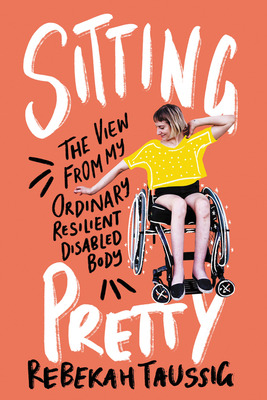
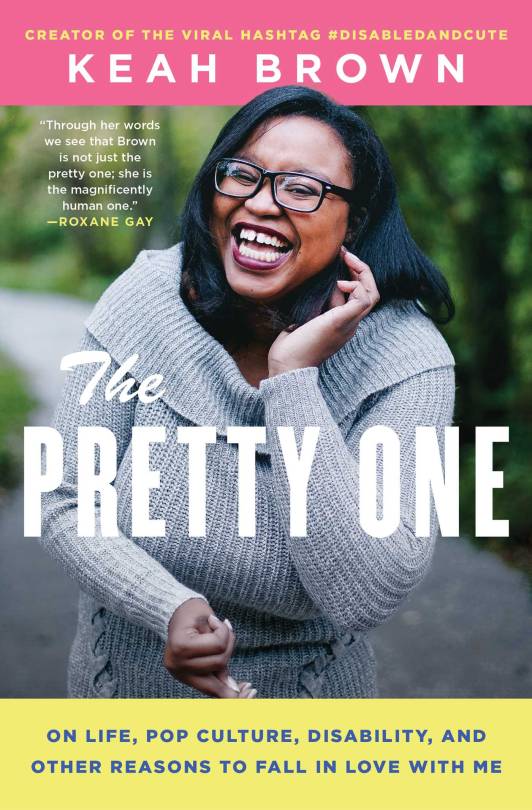
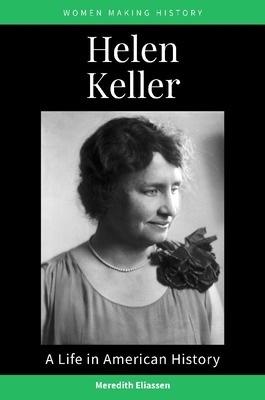
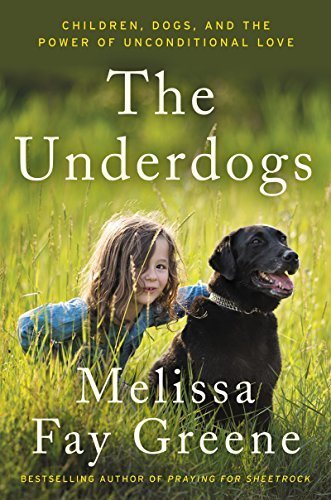
Disability Pride Month: More Nonfiction Recommendations
Sitting Pretty by Rebekah Taussig
A memoir-in-essays from disability advocate and creator of the Instagram account @sitting_pretty Rebekah Taussig, processing a lifetime of memories to paint a beautiful, nuanced portrait of a body that looks and moves differently than most.
Growing up as a paralyzed girl during the 90s and early 2000s, Rebekah Taussig only saw disability depicted as something monstrous (The Hunchback of Notre Dame), inspirational (Helen Keller), or angelic (Forrest Gump). None of this felt right; and as she got older, she longed for more stories that allowed disability to be complex and ordinary, uncomfortable and fine, painful and fulfilling.
Writing about the rhythms and textures of what it means to live in a body that doesn’t fit, Rebekah reflects on everything from the complications of kindness and charity, living both independently and dependently, experiencing intimacy, and how the pervasiveness of ableism in our everyday media directly translates to everyday life.
Disability affects all of us, directly or indirectly, at one point or another. By exploring this truth in poignant and lyrical essays, Taussig illustrates the need for more stories and more voices to understand the diversity of humanity. Sitting Pretty challenges us as a society to be patient and vigilant, practical and imaginative, kind and relentless, as we set to work to write an entirely different story.
The Pretty One by Keah Brown
From the disability rights advocate and creator of the #DisabledAndCute viral campaign, a thoughtful, inspiring, and charming collection of essays exploring what it means to be black and disabled in a mostly able-bodied white America.
Keah Brown loves herself, but that hadn’t always been the case. Born with cerebral palsy, her greatest desire used to be normalcy and refuge from the steady stream of self-hate society strengthened inside her. But after years of introspection and reaching out to others in her community, she has reclaimed herself and changed her perspective.
In The Pretty One, Brown gives a contemporary and relatable voice to the disabled—so often portrayed as mute, weak, or isolated. With clear, fresh, and light-hearted prose, these essays explore everything from her relationship with her able-bodied identical twin (called “the pretty one” by friends) to navigating romance; her deep affinity for all things pop culture—and her disappointment with the media’s distorted view of disability; and her declaration of self-love with the viral hashtag #DisabledAndCute.
Helen Keller by Meredith Eliassen
This book provides new and exciting interpretations of Helen Keller's unparalleled life as "the most famous American woman in the world" during her time, celebrating the 141st anniversary of her birth.
Helen Keller: A Life in American History explores Keller's life, career as a lobbyist, and experiences as a deaf-blind woman within the context of her relationship with teacher-guardian-promoter Anne Sullivan Macy and overarching social history. The book tells the dual story of a pair struggling with respective disabilities and financial hardship and the oppressive societal expectations set for women during Keller's lifetime. This narrative is perhaps the most comprehensive study of Helen Keller's role in the development of support services specifically related to the deaf-blind, as delineated as different from the blind.
Readers will learn about Keller's challenges and choices as well as how her public image often eclipsed her personal desires to live independently. Keller's deaf-blindness and hard-earned but limited speech did not define her as a human being as she explored the world of ideas and wove those ideas into her writing, lobbying for funds for the American Federation for the Blind and working with disabled activists and supporters to bring about practical help during times of tremendous societal change.
The Underdogs by Melissa Fay Greene
The Underdogs tells the story of Karen Shirk, felled at age twenty-four by a neuromuscular disease and facing life as a ventilator-dependent, immobile patient, who was turned down by every service dog agency in the country because she was “too disabled.” Her nurse encouraged her to tone down the suicidal thoughts, find a puppy, and raise her own service dog. Karen did this, and Ben, a German shepherd, dragged her back into life. “How many people are stranded like I was,” she wondered, “who would lead productive lives if only they had a dog?”
A thousand state-of-the-art dogs later, Karen Shirk’s service dog academy, 4 Paws for Ability, is restoring broken children and their families to life. Long shunned by scientists as a man made, synthetic species, and oft- referred to as “Man’s Best Friend” almost patronizingly, dogs are finally paid respectful attention by a new generation of neuroscientists and animal behaviorists. Melissa Fay Greene weaves the latest scientific discoveries about our co-evolution with dogs with Karen’s story and a few exquisitely rendered stories of suffering children and their heartbroken families. Written with characteristic insight, humanity, humor, and irrepressible joy, what could have been merely touching is a penetrating, compassionate exploration of larger questions: about our attachment to dogs, what constitutes a productive life, and what can be accomplished with unconditional love.
#disability pride month#disabilities#memoir#biography#Library Books#nonfiction#nonfiction books#nonfiction reads#Nonfiction Reading#Book Recommendations#book recs#Reading Recs#reading recommendations#TBR pile#tbr#tbrpile#to read#Want To Read#Booklr#book tumblr#book blog#library blog
3 notes
·
View notes
Text
Prompts – Lines from Black Sails
“Are you as surprised as I am that I’m the only one here behaving myself?”
“Give us your submission and we will give you all the comfort you need.” “I can think of no measure of comfort worth that price.”
“I could walk out there and tell them the sky is red and they’d believe me. That’s the power you’ve given me.”
“Everyone is a monster to someone. Since you are so convinced that I am yours, I will be it.”
“We are at our least rational when we’re at our most vulnerable. If nothing else, this is a good reminder that, without a doubt, she is the point at which I’m at my most vulnerable.”
“A choice between you and I? She and I have been by each other's sides since she was thirteen years old. We have sailed together, we've killed together, we have shared things you couldn't begin to imagine. You've shared a bed with her for a week.” "You would be amazed what could change in a week in my bed.”
"Did he say how he went into the water?” "He said he lost his footing and he fell. He said you tried to save him.” "And how did the crew react to hearing that?” "Stunned and surprised I would say.”
“I have seen what she can build when she is feeling ambitious. I have seen what she can destroy when she is angered.” "Which of the two was she just now?” "She was something else entirely.”
“It was as if the sea had conjured that man out of nothing, and then taken him back for some unknowable purpose. When I first met Mr. Gates and he asked me my name, I feared the man I was about to create. I feared that someone, born of such dark things, would conceal me were I not careful. And I was determined to wear him only for a while, and then dispose of him when his purpose was complete.“
“You and I both know that there are men on both sides of this war whose identities are so enmeshed in this conflict that they are more afraid of ending it than they are of losing it.”
“When the dread moment arrives, your true nature will assert itself.”
“Right now, good men is not what the moment requires. Right now, the time calls for dark men to do dark things. Do not be afraid to lead them to it.”
“The Empire survives in part because we believe its survival to be inevitable. It isn’t. And they know that. That’s why they’re so terrified of you and I.”
“The threats have been made, the story’s been told.”
“I was so close to saying yes. There were good reasons to say yes and I heard it in my mind, trying to speak it over and over again. When the moment finally came, I spilt so much of myself into this place, in that moment I honestly didn’t know where I ended and it began. There may be ways of severing oneself in that way — sacrificing one part to save the other. In that moment, I honestly couldn’t find something sharp enough to make the cut.”
“Never let anyone stand in between you and your ambitions. Thank you for teaching that to me.”
“The closer we get to the end of this journey, the more contradictions we’ll accumulate — confusing issues we once thought were clear. I suppose the good news is, that’s how we’ll know we’re finally getting somewhere interesting.”
“The people he holds closest are most at risk of being consumed by him.“
“Worry ain’t a good look for a king. Not in a kingdom like this...where loyalty is in short supply.”
“It seems the only means I have in registering any meaningful disapproval of this deal at this point is to kill one or the both of you.”
“I beg of you, is there any way you can forgive me? That was the general sense of what I thought I might hear, coming from your mouth, were I ever this close to you again.”
“The new world is a gift. A sacred opportunity to right our wrongs and begin anew. And I do not want my family's plot in it to be the reason for its fall.”
“All this will be for nothing. We will have been for nothing. Defined by their histories, distorted to fit into their narrative, until all that is left of us are the monsters in the stories they tell their children.”
“Nobody will believe it’s possible until we show them. But when that day comes, you know what they’ll say? They’ll say that it was inevitable.“
“This is how they survive. You must know this. You’re too smart not to know this. They paint the world full of shadows… and then tell their children to stay close to the light. Their light. Their reasons, their judgments. Because in the darkness, there be dragons. But it isn’t true. We can prove that it isn’t true. In the dark, there is discovery, there is possibility, there is freedom in the dark once someone has illuminated it. And who has been so close to doing it as we are right now?“
“No matter how many lies we tell ourselves, no matter how many stories we convince ourselves we’re a part of, we’re all just thieves awaiting a noose.”
“A story is true. A story is untrue. As time extends, it matters less and less. The stories we want to believe, those are the ones that survive, despite upheaval and transition and progress. Those are the stories that shape history.”
“The only thing I’m ashamed of is that I didn’t do something to save him when we had the chance. That instead, I listened to you.”
“And every time I said my name, they knew my name. The first thing they said every time was your name. Like we was two halves of the same thing. I can’t be your wife. But you and I are gonna be partners till they put us in the f***ing ground.”
“You’re an educated man, my lord, but I think it worth reminding you that in most cases a man trying to change the world fails for one simple and unavoidable reason… everyone else.”
“Me, I can’t help myself. I see an opportunity, I take it. It’s a sickness.”
"If you're going to behave like children, then I will be your daddy."
"It ain't cowardly to want to do a hard thing smart."
“I once thought that to lead men in this world, to be liked was just as good as feared. And that may very well be true. But, to be both liked and feared all at once, is an entirely different state of being.”
“This ends when I grant them my forgiveness. Not the other way around."
“To be underestimated is an incredible gift.”
“What if the result of this war isn't beyond the horror? What if it is the horror itself?”
“A long time ago, I absolved myself from the obligation of finding any. No need to account for all my life’s events in the context of a story that somehow defines me. Events, some of which, no one could divine any meaning from other than that the world is a place of unending horrors. I’ve come to peace with the knowledge that there is no storyteller imposing any coherence, nor sense, nor grace upon those events.”
“This is the most dangerous part. Look at him. His mind is drowning in questions.”
“You don't know me, but you once did, when I was the lowest among you. Now I return, and I offer you a chance to be free of this place.”
"I will go on, from time to time. But generally in the service of thoroughness."
“Great art has felled empires”
“I want to see this whole goddamned city, this city that you purchased with our misery, burned. I want to see you hanged on the very gallows that you use to hang men for crimes far slighter than this. I want to see that noose around your neck and I want to pull that fucking lever with my own two hands!”
“I have known you like no other. So I love you like no other.”
“I think you're fighting for the sake of fighting! Because it's the only state in which you can function. The only way to keep that voice in your head from driving you mad!”
“I will guide you through it, but at its end is where you must leave me. At its end is where you will find the peace that eludes you, and at its end lies the answer you refuse to see.”
3 notes
·
View notes
Text
was writing this yesterday and then forgot to post and good news bc it looks more like this might be it??
i think my ideal quarter finals for the flint black sails monologue bracket is. wait actually i cant abbreviate these because literally like every line is Soooo good and adds stuff to it for me. so copypasting whole monologues lol
Flint, to Silver, in 410: “This is how they survive. You must know this. You're too smart not to know this. They paint the world full of shadows… and then tell their children to stay close to the light. Their light. Their reasons, their judgments. Because in the darkness, there be dragons. But it isn't true. We can prove that it isn't true. In the dark, there is discovery, there is possibility, there is freedom in the dark once someone has illuminated it. And who has been so close to doing it as we are right now?”
Flint, to Silver, in 410: “All this will be for nothing. We will have been for nothing. Defined by their histories… distorted to fit into their narrative… until all that is left of us… are the monsters in the stories they tell their children. […] You will. Someday, you will. Someday. Even if you can persuade her to keep you… she’ll no longer be enough. And the comfort will grow stale. And casting about in the dark for some proof that you mattered and finding none, you’ll know… that you gave it away… in this moment… on this island. Left it in the ground… along with that chest.”
Flint, to Madi, in 403: “Well, that’s the trick, isn’t it? If no one remembers a time before there was an England, then no one can imagine a time after it. The empire survives in part because we believe its survival to be inevitable. But it isn’t. And they know that. That’s why they’re so terrified of you and I. If we were able to take Nassau, if we are able to expose the illusion that England is not inevitable, if we are able to incite a revolt that spreads across the New World… then, yeah… I imagine people are gonna notice.”
after that its difficult but either
Flint, to Silver, in 408: “If we are to truly reach a moment where we might be finished with England… cleared away to make room for something else… there most certainly lies a dark moment between here and there. A moment of terror…where everything appears to be without hope. I know this. But I cannot believe that that is all there is. I cannot believe we are so poorly made as that. Incapable of surviving in the state to which we are born. Grown so used to the yoke that there can be no progress without it.”
or
Flint, to the Maroon Queen, in 305: "I have great respect for your husband, and I know what he wants me to say… that you have no choice but to use me and my men to hunt for you, that I am your only means of survival. But let’s be honest. If that is all I can offer you, then my men and I are dead before the sun rises tomorrow, because you know there is always a choice to be made, and you don’t trust me at all. So… let us assume that I can offer you something better. You have hidden in this place for a lifetime, hidden from the harsh realities that lie beyond this veil that you have constructed here, but the moment that that shot entered his belly, that veil began to unravel, and sooner or later, you are going to have to confront these realities, chief among them being that England takes whatever, whenever, however it wants. Lives. Loves. Labor. Spirits. Homes. It has taken them from me. I imagine that it has taken it from you. And when that veil drops altogether, they will come for more.[...]
[this parts long but like i really love the ending of it so even tho its not in the poll its there. to Me]
I am suggesting that we help each other start taking things back, and it starts with Nassau. You cannot stay here. This camp's secrecy is its virtue, but that secrecy is going. Nassau is defendable. Nassau can supply itself. Is that not exactly the sort of place that could replace this? A place that you could settle? Governor Woodes Rogers holds Nassau Town with a full company of British regulars. He holds the harbor with a small navy. He holds the men on the street with his pardons. Woodes Rogers has an inoperative fort, responsibility for an administrative nightmare that isn't going away just because he wants it to, and an island full of hunters that may be placated for now, but could be awoken. That I could awaken. They pledged to follow me when they thought I was alive. They turned when they thought I was gone. So I will come back from the dead and lay claim to what I am owed. For every man in your camp, there are thousands somewhere in the West Indies living under the same yoke, chained in fields, pressed on ships, sold into indenture. When they see a sitting governor protected by His Majesty's Navy, deposed by an alliance of pirates and slaves, how many consider joining that fight? How many thousands of men will flock to Nassau, join your ranks, and help you defend it? What does a colonial power do when the men whose toil powers it lay down their shovels, take up swords, and say no more? Bring down Nassau, maybe you bring it all down.
i think i mostly just really really love flints monologues once hes become a communist lol even if theres also so much in his monologues before his political evolution its just these ones just like Fully Out There stating huge themes in the show im so Ouaghhhhh holky shit
1 note
·
View note
Text
I'm late to the party but what do we think Flint's last words in treasure island mean in the context of black sails?
"Darby M'Graw - fetch aft the rum...." (Treasure Island, Chapter 32)
Is it just a funny reference where you're like, oh, that's where they got his last name in the show from?
I mean, theoretically Darby McGraw could have been the name of his grandfather. And we know the story Flint told us about how he choose "Flint" to be his name and how it ties to his grandfather.
So what if Flint never got to stop being Flint, in a way, couldn't let Flint go anymore. So at some point he starts drinking (a lot) and then he's about to die and that's the only way he's ever gonna be rid of Flint? By dying? And he's close to dying, so he's thinking of that story again, about Mr. Flint who disappeared when his grandfather went to get more rum? And he's very drunk so he's saying it out loud, and in a very incomprehensible manner, but no one would have had any context as to what he was on about anyways.
So that's his last words, his dying words, before Flint is after all, finally gone.
(for reference the bit of Flint's speech in 2x09 I'm talking about:)
"Eventually, [Mr. Flint] asked my grandfather for a little more rum from below. My grandfather went off to fetch it, but when he returned... the man was gone."
#there's probably lots of takes on this already#and i can come up with so many more myself just thinking about it#i just wanted to share that specific one cuz it was stuck in my head#and hear what other ideas are out there#also yes yes i know that treasure island is less something that happens exactly like this post black sails#but more a story that will be told in that world about something that happend#post black sails#treasure island is them (the pirates) having become the monster(s) in the story#defined by *their* histories#distorted to fit into *their* narrative#so uh. have this#james flint#james mcgraw#black sails#treasure island#black sails meta#silver.rambles
113 notes
·
View notes
Text
I'm still on this historical genre thing. Like the process of watching the show IS the process of having your assumptions about pirates and history proven wrong.
The characters in Season 1 play on a lot of historical action and pirate tropes. Flint seems like a "badass" captain, Eleanor seems like a girl boss, Billy is the naive newbie, Vane is the "savage" villain, Rackham is a slippery sidekick, Anne is silent but deadly, etc. This could just be a product of weak writing. Certainly not all of the characters are completely fleshed out in the beginning.
But all of these characters are given at least some nuance early on: the badass goes too far in his violence, the girlboss is secretly insecure, the naive one lies to the crew, the villain is genuinely heartbroken, Jack and Anne are surprisingly tender with each other. But I didn't really see these details until at least the second viewing.
The first time around, these nuances seemed like discrepancies rather than intentional. I dismissed them the first time. I think the tone really encouraged me to watch it uncharitably. The gratuitous nudity and slapstick humor undercut the more serious moments. When the characters seemed tropey, I assumed there was nothing more to them. I didn't give the writers enough credit to believe that depth would be added along the way.
Instead, they took these seemingly flat characters and then added layer after layer of complexity, without contradicting what came before. There are moments for each character that defied my expectations about them so much that it forced me to reasses them, and the show as a whole. Its only when you have the context of their entire arcs that you can return to S1 and recognize that what you saw was just the tip of the iceberg.
I think this is the reason I liked S1 so much better on rewatch. Its far from my favorite, but it feels like I'm seeing pieces of a much larger puzzle. You can't fully appreciate it until you know what the complete picture looks like. Even though literally the first two scenes tell you that there is more to this world than you assume (the scary pirates joking around after the raid).
Despite the flaws in S1, the way they took what they had and capitalized on it is incredible. It elevates its first season in retrospect. I don't think it would have had the same impact if they had done a more abrupt pivot in S2. Instead, they gradually add complexity. At the same time, the tone shifts to become more and more like a historical epic, something encourages you to notice how literary the writing is.
Whether or not it's what the writers set out to do in the beginning, the show first presents and then systematically deconstructs popular assumptions about history, pirates, civilization and the frontier. It weaponizes the preconceived notions that you are projecting onto the show against you. That's why the characters are continually surprising, even when they've heavily foreshadowed their true natures.
And that's why Flint's line about how they will "be defined by their histories" and "distorted to fit into their narrative" hits me so hard every time. We KNOW its true because that's precisely how we entered the show. Its only by the end that you fully realize how tragic that is.
#black sails#black sails meta#I will never be free of this show#its a historical drama about history#its a pirate show about pirate tropes#its a literary adaptation about stories#its a prequel about backstories#its a frontier story about marginalization#im losing my mind and trapped in the narrative#there is no other meta storytelling like this on tv
252 notes
·
View notes
Text
Star Trek: The Characters
Storytelling, especially where it regards movies and television, is always evolving.
Whether it’s in deeper themes, better effects, different genres, or evolving archetypes, there is always something that is changing, except, perhaps, where the importance of characters are concerned.
Characters are an integral part of storytelling, particularly where it concerns television. When it comes to television, the setup is everything, and the characters are part of that setup, that ‘home base’ that the audience returns to at the start of every episode. The characters are the people that the audience gets to know, who star in each adventure. Characters are what holds the audience’s investment, the reason fanbases tolerate bad episodes and praise good ones. In the end, the main characters keep an audience’s attention, making each episode, even the bad ones, enjoyable.
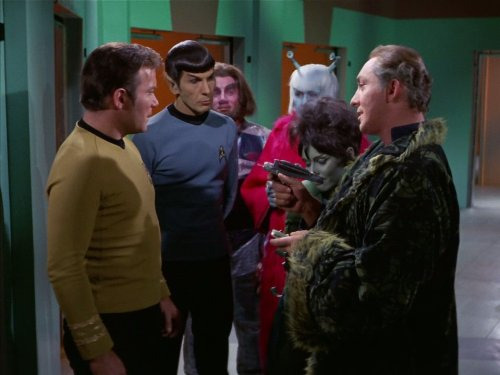
In short, characters can make or break a television show. It is vital that they be likable, or at the very least, interesting, lest the audience utter those eight deadly words:
I Don’t Care What Happens To These People.
Once those words are uttered, it doesn’t matter how gripping your narratives are. The viewers will start to leave.
See, while a film can get away with some lesser characters by distracting with an interesting concept, set-piece or a fast-paced story, television can’t. Thanks to a smaller runtime and a smaller budget, television, by necessity, tends to be character based. As a result, the main cast of a television show has to be able to work in multiple stories of different kinds.
This means that writing for characters on television can be pretty difficult.
The best television characters tend to merge two ideas together: That of relatability and entertainment value.
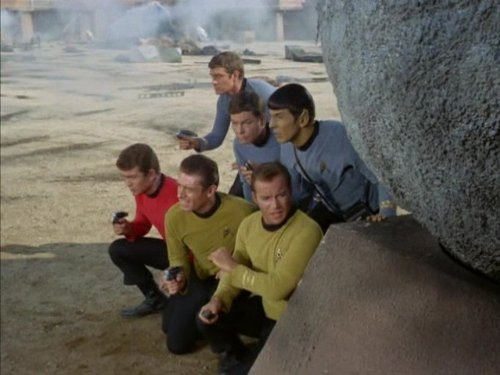
You see, television, like all stories, tells stories of exaggerated versions of reality, especially in the cases of science-fiction adventure shows like Star Trek. The only way to make an audience buy an unbelievable world is to create believable characters to place in that world, that relatability in the stories and characters. When we see McCoy’s frustration, or Kirk’s boldness, or Spock’s reservedness, we see elements of ourselves, our own personalities and lives. It is vital to make characters seem real, if not realistic.
The question is, does Star Trek manage to do that?
That’s the question we’re going to be answering today. Let’s take a look, starting with the Captain of the Enterprise Crew: James Tiberius Kirk.
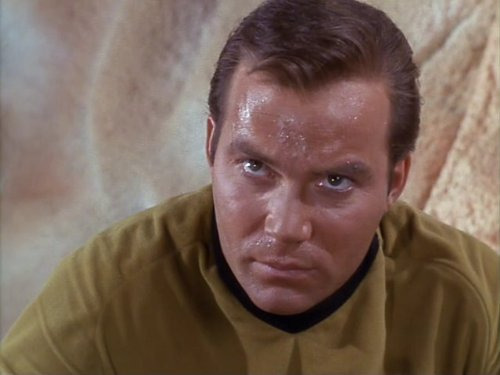
Kirk truly was The Captain in every sense of the word. A Reasonable Authority Figure who did far more adventuring than realistic counterparts would have, Kirk was an Action Man, level-headed, dutiful, and always loyal to his ship and his crew. A Bold Explorer (it’s in the job description), Kirk, while not fearless per say, took the Chains of Commanding quite seriously, and would often face down hugely powerful beings, power-mad computers, or other forces beyond him in order to save his crew. A Determinator to the last, known for his interesting ways to think outside the box and refusal to accept a ‘no win scenario’, he is the unquestionable Hero of the show, the Leader, who often throws the rules aside to do what he feels is right, in a constant battle To Be Lawful or Good. He was a Charmer, an expert fast-talker, and very smart. In later installations of the franchise, Kirk would become a Living Legend, much as he became in our own pop culture.
All that being said, the common cultural image of Captain Kirk isn’t quite right. Allow me to adjust it, as best I can.
More than any other character in Star Trek, or perhaps the history of television in general, Captain Kirk is possibly the most misrepresented character of all time. Since the ‘60s, Kirk has evolved into an icon of heroism, machismo, and brash boldness, with even the recent Star Trek reboot depicting, not Kirk, but rather, the distorted, separate idea of Kirk in the modern light.
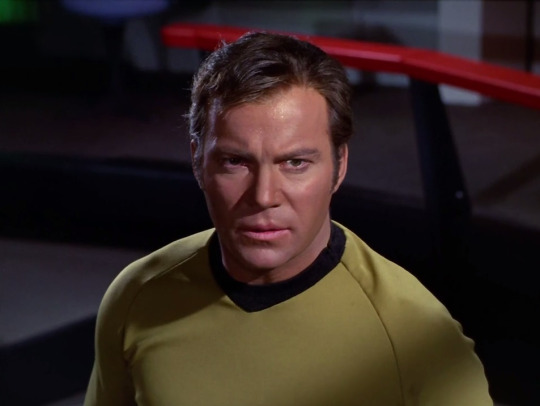
This idea, quite frankly, is just not right. While Kirk did have his share of romances, he was no womanizer, often entering into dubiously consented-to relationships reluctantly, in order to save the ship. The relationships he did actively pursue, he threw himself into wholeheartedly, and he was just as crushed as the other party every time they fell apart (for proof, watch City on the Edge of Forever or The Paradise Syndrome). Kirk was no player. As a matter of fact, he was a deeply compassionate man who respected the women in his life as much as he respected Spock and McCoy. It just so happened that the women in his life tended to not stick around, unlike his one true love: The Enterprise.
Even his reputation of the ‘Cowboy Captain’ isn’t accurate. As I mentioned before, Kirk was defined by compassion. His moments of ‘rule-breaking’ wasn’t to impose ‘the way he thinks things should be’, it’s because Kirk cannot bear to watch helpless people in trouble. The few times where he does break the famous ‘Prime Directive’ (To not interfere with less developed races) is to help. Kirk was a deeply moral character, determined to not stand by while people were taken advantage of. He wasn’t rash, either. While it may be accurate to say that the ship’s doctor, Leonard McCoy, was a bit on the hot-headed side, it is entirely inaccurate to accuse Kirk of the same. Kirk was an extremely smart man, a level-headed captain who was an expert at thinking fast. He trusted his instincts, but he trusted his advisors too, often finding a balance between McCoy’s impulsiveness and Spock’s cold rationality. Kirk’s intelligence and competence is often lost, overshadowed by his more extreme companions, and some audiences have forgotten the truth of Kirk’s character: a cunning problem-solver capable of saving the day under enormous pressure, whose decisions are far from based in irrationality. He is a romantic, duty-bound to protect his ship and crew, greatly exaggerated and mis-characterized in the years following his captaincy.
As such, Kirk was a well-rounded, balanced character, far more three-dimensional than the modern idea of him tends to give him credit for.
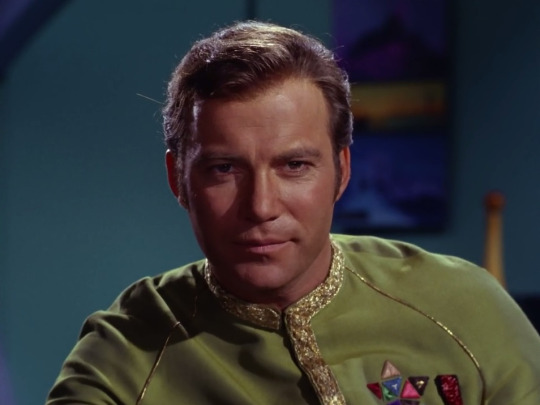
That’s all well and good, sure, but how does he fit as a main character in a television show?
As a matter of fact, absolutely incredibly.
Kirk serves as a wonderfully effective lead, compelling, entertaining, and interesting. Infinitely more developed than most leads of his time, and even more modern examples, Kirk was a game-changer, a revolutionary kind of protagonist who just worked. The perfect balance of the main trio of the series, Kirk is the perfect face for Roddenberry’s ideals: a hopeful pragmatist, an idealist who proves the best of humanity: compassion mixed with intelligence, boldness combined with understanding. A man of action surrounded by True Companions, Kirk was an extremely gripping protagonist who felt intensely, a perfect person for the audience to connect to and be invested in. He drove the stories, opposed the villains, and always saved the crew, as a hero should, but it’s important to note that Kirk was hugely human, possessing many of our greatest attributes, but some of our failings as well. He wasn’t perfect. Sometimes he made the wrong choice. In the end, though, he was us, or us as we should strive to be: always learning and helping, and always reaching for the stars.
But of course, Kirk wasn’t alone in his position as the ‘lead’ of the show. It’s doubtful the show would have survived in the popular culture as well as it did if it weren’t for his support team, his True Companions: Dr. Leonard McCoy, and, more famously: Mr. Spock.
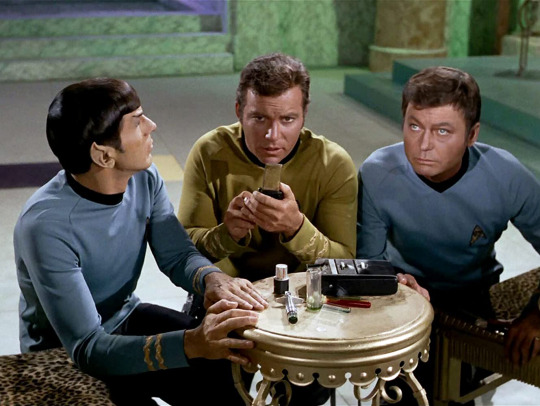
If Kirk represented the best of humanity, Spock represented the critique of it. In a previous article, I pointed out that Spock exists as a very unique character: a half alien, half human crewmember who, while equally valuable to the script and the characters as Kirk was, served a different purpose: to point out and explore humanity from the outside.
Like I’ve mentioned before, Spock is a different sort of character than Kirk is. Where Kirk is a demonstration of the best of humanity as we see it, Spock is a demonstration of humanity as someone else might. He served as a criticism of the human condition, a character at war with himself and his heritage, split between the emotional humans, and the rational Vulcans. Spock is the Number One, almost Comically Serious as he eschews his more illogical half and chooses to embrace the stoicism of the Vulcan people. A Gentleman and a Scholar, Spock has Hidden Depths, a heart of gold and deep emotions that he usually succeeds in hiding.
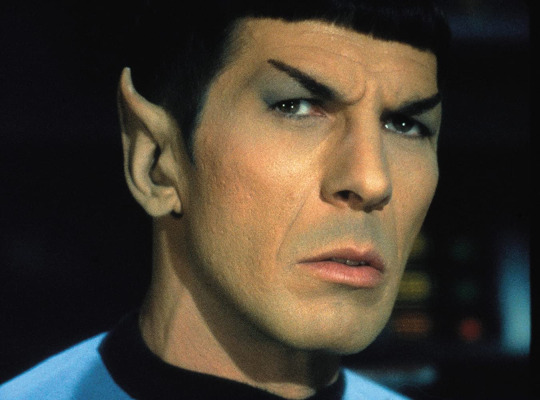
Most of the time. More on that in a minute.
Spock’s role in the show was The Smart Guy, the Stoic who had all the answers, all the statistics. He was the champion of impartial logic, of cold rationality. His job was to give Kirk the hard answers, to bring to him the facts and give him their options, especially the unforgiving ones. He is the cold to McCoy’s hot, a stern-faced, cold-blooded computer.
Or is he?
Much like Kirk, there is a lot more to Spock than meets the eye. While the cultural perception of Spock has often mutated into a parody of itself, much as it has done to Kirk’s reputation, Spock remains a much deeper character than he, or a brief skim of the series, lets on. As I said earlier, Spock is at war with himself, uncomfortable in his own skin. He insults humans for their humanity, but has strong, deep friendships with them. He is not above expressing frustration and their emotional natures when pushed (usually by other forces that knock his guard down), but isn’t frustration a human emotion?
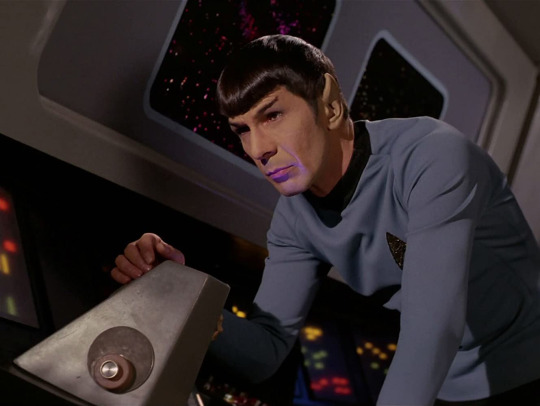
Spock is a bag of contradictions, a supposedly emotionless master of sarcasm, a man without feeling who invites his close friends (emotional humans) to a private Vulcan ceremony, a cold-blooded creature with undying loyalty who occasionally makes ‘illogical’ decisions that would make Kirk proud. A lover of music and a sympathizer to space hippies (Not one of Star Trek’s better episodes, admittedly), Spock was an outsider who fit neither fully as a Vulcan or Human, a person who was struggling to find his place in the universe.
At first, this seems incongruous with the ice-cold exterior he projects, however, rather than being an example of inconsistent writing, it’s a shining example of development and nuance.
You see, Spock never gives up his following of logic. He just begins to approach it differently.
Spock’s style changes slightly as Star Trek progresses (most notably in the films, released ten years after the show’s final season), from cold, ‘computer’ logic to something else: human logic.
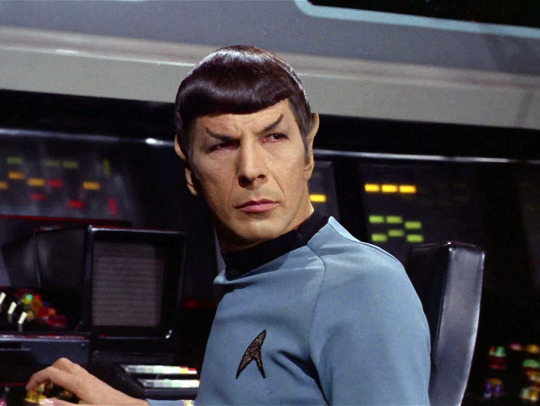
One thing of especial note in the original Star Trek show is that you could see characters visibly affecting one another. Kirk, Spock and McCoy all influenced each other in the ways they thought, reacted, and planned, and worked best as a unit. In this, the humanity of the main cast affected Spock in his slow, reluctant appreciation of human merits. In time, Spock began to make one or two decisions based on human logic, intelligence and emotion. In episodes like The Menagerie or The Galileo Seven, Spock makes decisions that seem out-of-character for him, based in emotion.
Spock is, in many ways, Star Trek’s best known and favorite character. The most visibly recognizable, as well as the most distinct, Spock is given more episodes exploring him than any other character, with installments like Amok Time and Journey to Babel, (the latter of which we explore his parents, and discover why it is that Spock has such a hard time with his human half) helping to examine Spock as a character.
The end result was a beloved science fiction icon, Kirk’s right hand man, an analytical, fascinating character as well-crafted and loved as Kirk himself.
Spock and Kirk are often remembered fondly, and are typically considered the most memorable and iconic characters of the franchise, but they don’t work alone. Their dynamic is as effective as it is because of balance. Spock is one extreme, and Kirk is the middle, but it’s no good without the other extreme: Dr. Leonard Horatio “Bones” McCoy.
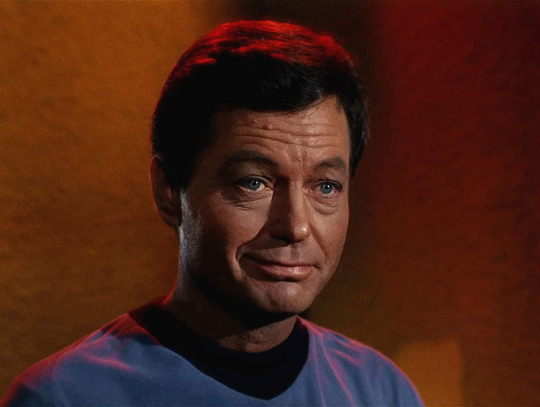
McCoy is all hot-blooded human, the third of the main Power Trio. An old-fashioned competent doctor who wasn’t entirely thrilled with deep space, McCoy is a deeply emotional character, duty-bound to follow his morals. He clashed with Spock regularly, routinely criticizing him for his perceived lack of emotion. Despite the fighting, McCoy respected Spock greatly, counting him as a close friend, despite their arguments and different perspectives. A cantankerous pacifist (though not above getting into the action when needed), McCoy is a Super Doc and a Sarcastic Devotee, a Grumpy Old Man who serves as the Heart to Spock’s Brain (hah!), a man who values Honor Before Reason who values the Good Old Ways. He’s a Determined Doctor who does everything he can for his patients, and a Deadpan Snarker to the point where he can match Spock in verbal sparring.
Bones represents the unpolished rawness of humanity, getting carried away with his emotions sometimes, but always with the best intentions. Another Jerk with a Heart of Gold, McCoy’s gruff nature accompanied a deeply moral man, very concerned with human empathy and doing the right thing. No philosophical discussion was complete without McCoy’s two cents, telling Kirk what he thought the right thing to do was. He was the quintessential Knight in Sour Armor, who would follow Kirk to the ends of the earth, complaining the entire way.
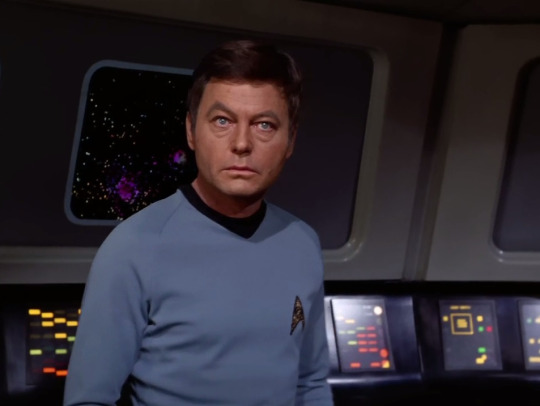
Despite the fact that he’s not as well-known as the other two members of the Power Trio, Bones was a vital component to the True Companions dynamic. His Vitriolic Best Buds relationship with Spock made up one of the most interesting and compelling dynamics on the show, serving as perfect counterbalances to one another. However, although his most famous role in the show was arguing with Spock (and delivering phrases such as ‘He’s Dead, Jim’), there is another, equally important position that he held in the trio.
McCoy served as a foil to Kirk, as well as one to Spock, a confidante, a close friend, providing perspective. While Spock was focused on the logic, Kirk on the best thing for the mission, McCoy’s focus was purely on the ‘patients’, the people, the right thing to do. No matter the situation, McCoy was the closest to empathy with the people involved, and provided the audience with another surrogate, saying the things that the viewers are thinking.
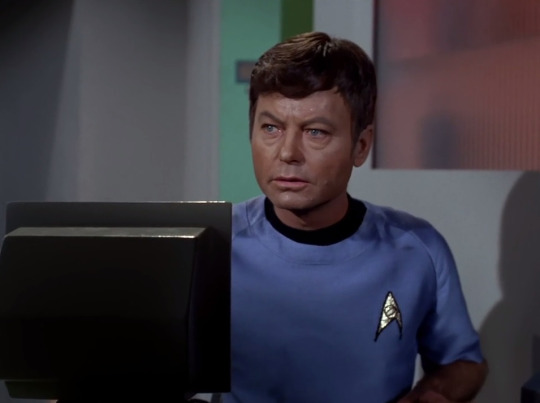
While not being a terribly big fan of space (and liking transporters even less), Bones was the epitome of the Frontier Doctor to the stars, taking care of every patient, even if they weren’t humanoid (Devil in the Dark) or a heavily pregnant woman who refuses to listen (Friday’s Child). McCoy was painfully human, reminding us of our most problematic traits while also holding onto that wild, fiery compassion that made him so incredibly humane, relatable, and understandable, making him just as vital to the Enterprise and her crew as Kirk or Spock.
The trio worked best together, providing a perfect main cast for an audience to follow. The formula was an interesting one, allowing the audience to hear separate viewpoints and ideas, listen in to the philosophical banter, and truly feel the strong friendship holding the leads together. The dynamic between them was powerful, an extremely vibrant bond that connected all three very different characters.
The result? Extremely dynamic characters that remain iconic and memorable even to this day.
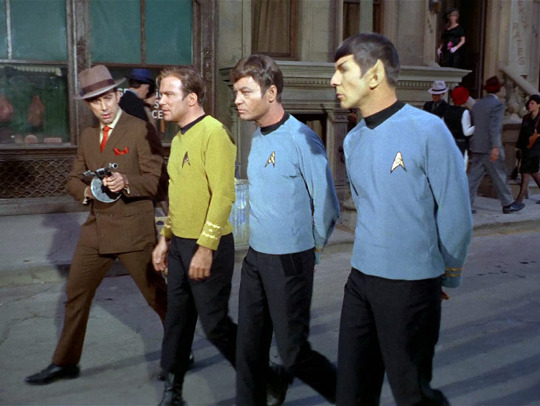
But the cast didn’t stop there.
The other characters of Star Trek, while not quite possessing the pop-culture iconography of the main trio, still hold their own rather impressive cultural footprint.
None more so than the chief engineer, Montgomery Scott.
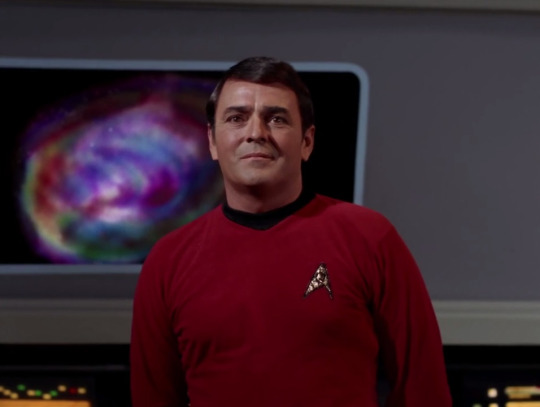
Scotty’s job was to be a miracle worker, solving impossible problems in impossibly small amounts of time. Whether it was the transporters, the phaser banks, the shields, or the engines, Scotty was the man for the job. Nobody had a better understanding, or love for the Enterprise than Scotty (except maybe Kirk). He was the king of outside-the-box solutions, and had the Enterprise jury-rigged to push her past her limits more times than can be easily counted. As the name implies, he was also Scottish, and extremely stereotypically so. Kilt, whiskey, haggis and all, Scotty was extremely proud of his heritage (though not quite as much as Chekov). Fitting the traditional stereotypes, Scotty had a fiery temper, with a Berserk Button triggered by any insult to the Enterprise. A Gadgeteer Genius (and the inventor of Scotty Time) as well as a Genius Bruiser, Scotty was both the brains and brawn, more than capable of holding his own in a fight, or thinking of a new, creative way to push the Enterprise past her capacity.
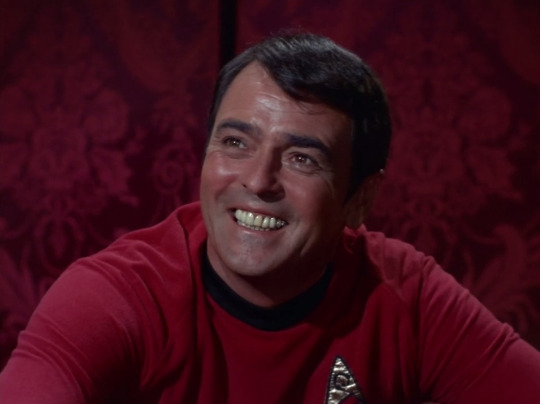
Scotty also held the distinction of being third in command, routinely taking the Captain’s chair when both Kirk and Spock were in the landing party. He was also the focus of a few episodes, making him a rare character with a Day in the Limelight, with episodes such as Wolf in the Fold, The Lights of Zetar, By Any Other Name, and The Trouble with Tribbles giving him a little more screen time and story than is typical. Scotty was an indispensable member of the crew, a life-saver on more than one occasion, and another of the legendary, iconic characters of the original Star Trek.
But it didn’t stop there.
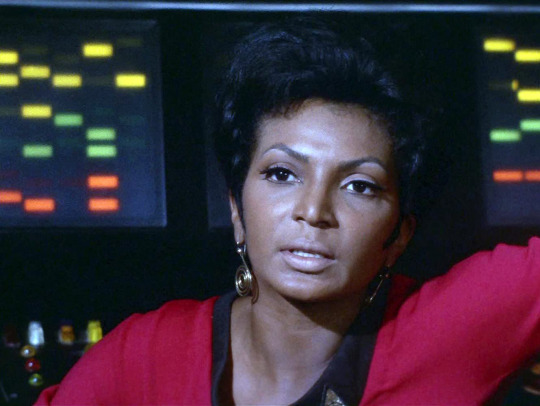
Lieutenant Nyota Uhura was another prominent character. As the ship’s communications officer, she codified the term ‘Bridge Bunny’, although she proved herself far more useful than she’s typically thought of. Whenever given the chance, Uhura is a capable Action Girl, intelligent, witty, and good at her job, being extremely fluent in multiple languages. She too got her days in the limelight, with episodes such as Mirror Mirror, The Gamesters of Triskelion, and The Trouble with Tribbles giving her more to do than just sit at her station and say ‘hailing frequencies open’. Uhura was Silk Hiding Steel, not typically in the heat of the battle, but tough as nails when she had to be. (I’ve talked about Uhura’s extensive influence on the real world in the Legacy article, but even that doesn’t scratch the surface of what Uhura’s impact has been.)
There were others on the bridge crew of equal importance, including the ship’s helmsman, Hikaru Sulu.
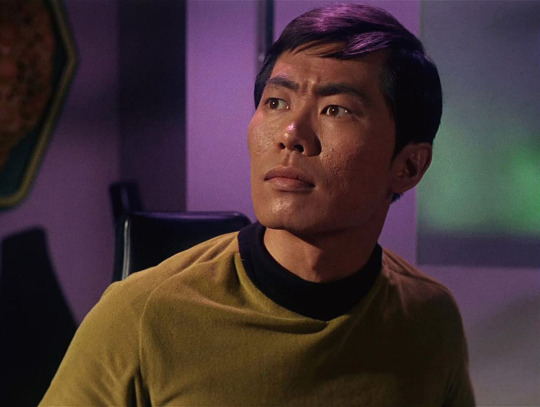
Sulu was a level-headed officer, amiable and cultured, with an extensive knowledge of botany, fencing, and antiques. Yet another Deadpan Snarker (it must run in the cast), Sulu is another Genius Bruiser, as skilled in fighting as he is in his piloting, with a great sense of humor. He is given special attention in episodes like Mirror Mirror and The Naked Time (Albeit as evil, and Brainwashed and Crazy), but often got great character moments in multiple episodes (especially Shore Leave). A reliable officer and loyal to the core, he made an interesting character by himself, although he did end up forming a fun ‘Those Two Guys’ dynamic with the youngest of the cast, Pavel Chekov.
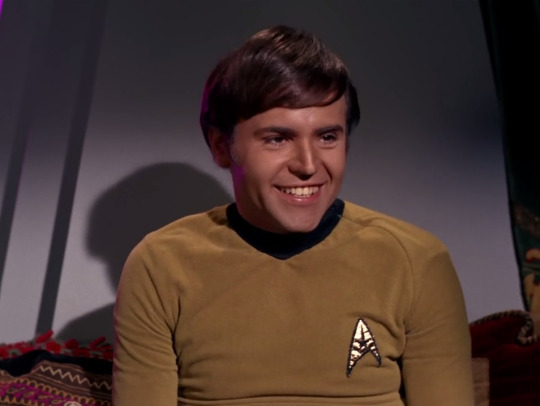
Chekov was introduced in season 2 as the navigator of the Enterprise. A bright young man with a fierce, passionate loyalty to Mother Russia (which evidently invented every good thing known to man), Chekov tended to be at the receiving end of a lot of the embarrassing agony in the series (mostly because Walter Koenig had a great scream). Also serving as a relief science officer, Chekov was plenty smart, if a bit of a Cloudcuckoolander, and the king of Cultural Posturing. Reckless and impulsive to balance Sulu’s calm good humor, Chekov’s temper tended to get the better of him. Like the others, he’s given a bit more screen time in episodes such as Mirror Mirror, The Trouble with Tribbles, The Way to Eden, The Deadly Years and Spectre of the Gun, but got to shine in plenty of other episodes, demonstrating his capabilities (despite being ‘The Intern’ and the Plucky Comic Relief) as a competent officer. Unsurprisingly, he was yet another Deadpan Snarker, lending his style of jokes well to bounce off of Sulu’s drier humor.
But there was more to the crew than the bridge.
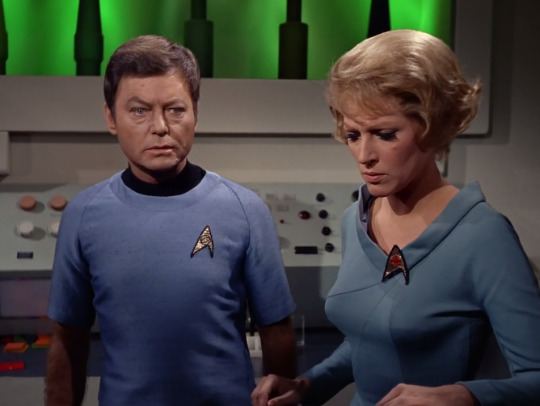
Another crew member of note was Christine Chapel, one of the nurses who operated in the sickbay. Chapel was notable for having an attraction to Spock, as well as being another in the long line of Enterprise Deadpan Snarkers. One of the most caring of the Enterprise’s crew, Chapel was given larger roles in episodes like The Naked Time, What Are Little Girls Made Of?, Amok Time, and Plato’s Stepchildren.
Arguably though, one of the most important characters in all of Star Trek was the Companion Cube: the Enterprise herself.
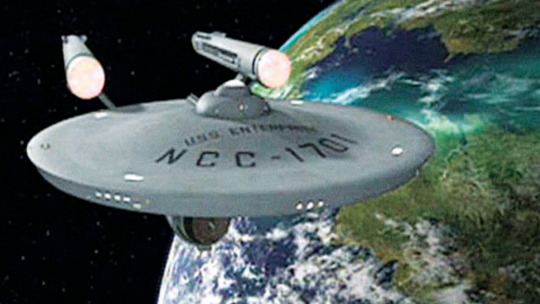
The Enterprise was one of the most powerful ships in Starfleet, a character in her own right. The epitome of the Cool Starship, the Enterprise was well known for Explosive Overclocking, and always coming through in the end (with a little help from Scotty). A Lightning Bruiser of a ship, the Enterprise became as legendary as her captain and crew, as beloved as the characters themselves to the point where one of NASA’s shuttles was named after her.
The characters of Star Trek are legends, both in and out of universe, and they are for a reason. No member of the crew is useless. Everyone has a purpose and a job to do, and each was distinct and unique. No two characters were the same, and each brought their own special personality and abilities to each episode they appeared in.
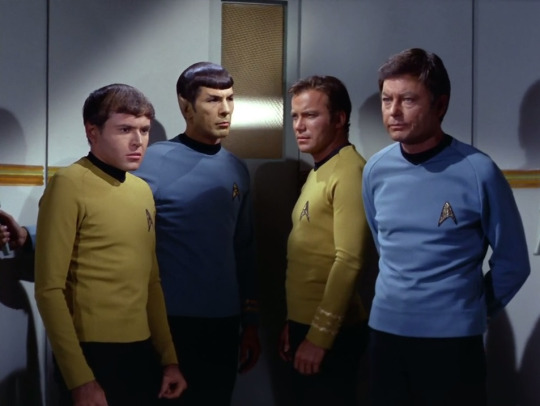
And that’s what made the drama of the show work so well.
Each character felt real, memorable and genuine. We as an audience worry for them with each danger, and cheer with each victory. We liked these people. We cared about what happened to them.
And they worked.
In each scenario and situation, the characters found new and interesting ways to deal with the circumstances, while never losing the core elements of their personalities. That’s important, hugely so. These characters were loved, and still are, for a reason. They work very well as characters, both in main and supporting roles, providing entertaining and compelling figures for the audience to invest in. The balance between relatability and entertainment was hit perfectly for every single character, allowing everyone to shine in their own ways in each episode. They felt real, and in the end, that’s the point of a character.
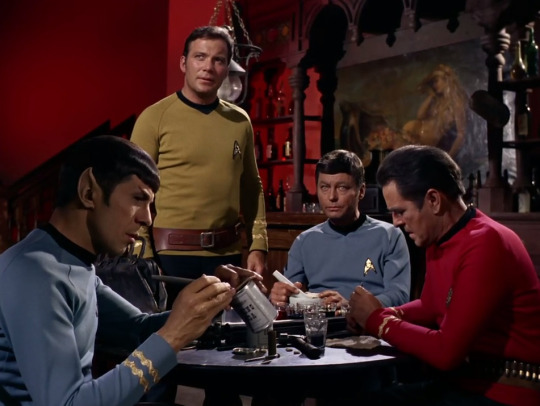
After all, one doesn’t get to be some of the most iconic television characters of all time by being boring.
Thank you guys so much for reading! Join us next time as we discuss Star Trek’s place in the times and the culture. If you have anything you’d like to say, don’t forget to leave an ask! I hope to see you all in the next article.
#Star Trek: The Original Series#Star Trek#TV#Television#TV-PG#60s#Drama#Action#Adventure#Sci-Fi#Science Fiction#William Shatner#Leonard Nimoy#DeForest Kelley#James Doohan#Nichelle Nichols#George Takei#Walter Koenig#Majel Barrett#Gene Roddenberry
133 notes
·
View notes
Text
Okay so I finished watching black sails a few days ago and I’ve spent the last few days reading other metas and posts and interviews about Flint & Silver to gather my thoughts (thots, if you will) and these are the conclusions I have come to:
John Silver and James Flint have the most interesting and well written dynamic ives ever seen between two characters. I am endlessly fascinated by their relationship. Because it’s so unique and complex and I can’t think of any other relationship between two men on screen that even gets close to being on their level, that level of intimacy and their DIALOGUE????? especially in season four????? there is no daylight between us???? i have made myself transparent to you????? you already know me in all the ways that’s relevant???? fuck me up dude!!!!!
All of that being said, I don’t like… ship them. At least not in the conventional way of shipping. I don’t see them as boyfriends or husbands or even as romantically involved. Like I said I LOVE their dynamic and I am fascinated with the complexities of it, and I really and truly think that they loved each other deeply, but to me the idea of them being like in an explicit, canon relationship sort of... cheapens it?
Especially if we’re talking about seasons 1-3 flint & silver. To me, saying that they were romantically involved during that time period sort of misses the point of their build up. Because they didn’t even really like each other then. They were necessary evils in each other’s stories. ESPECIALLY in seasons 1 & 2, they weren’t friends! They were work place acquaintances who needed each other to survive. And remember Silver’s whole season three arc of “I think flint controls the weather”???? Lmaooo the idea that they were romantically involved at that time, to me, almost does a disservice to their characters and the journey that they took to get to where they were in the fourth season.
Because I don’t think that they truly started to even be friends until that night around the fire. When Silver asked in who’s name they were fighting the war and Flint told the truth about his past. When Flint made himself transparent and vulnerable to Silver, and they openly discussed their partnership. When they came to a mutual understanding of each other, when they felt the possibility of the future together, that is when they really and truly emotionally connected and became more than work place acquaintances, became even more than just casual friends.
But I still don’t think that they were like, together together in season four.
Do I think there were extremely high levels of homoeroticism? also-fucking-lutely. But I don’t think they were romantically involved. For many reasons.
I think that the last two episodes of the series do not work if they did not love each other. The last two episodes are not effective if there is not something deeper there, if there isn’t something to lose when they fall apart. Like when Billy and Silver fall apart? I was like aww they were friends. :( and that’s it. When Silver and Flint fell apart? I sobbed my fucking eyes out. Would I have been as destroyed by Silver’s betrayal if I didn’t truly believe that these two men had a deep and profound relationship, that they needed each other and completed each other? Lmao no! No I wouldn’t have. If Flint didn’t love Silver, he wouldn’t have taught him sword fighting, he wouldn’t have shot Dooley, he wouldn’t have looked so deeply crushed when Silver raised the gun. Because the look on his face? When that happens? That is heartbreak, pure and simple.
BUT. I ALSO think that the last two episodes of the series do not work if that love is explicit and defined. I do not think it works if Silver is fully aware of that love. Because I don’t think he is. I think he has found himself closer and closer to Flint, committing himself to Flint, becoming the other half of Flint, and….. doesn’t quite realize how homoerotic it is lmao. Because he has Madi! And Silver has never really had someone to be close to before, so I honestly don’t believe that Silver was aware how how Homo(TM) the whole thing was with Flint, at least not consciously, at least not out loud. And I say this because there is a very important moment in the finale that doesn’t work if their relationship is defined and official or romantic in any way.
It’s when Flint says “This will all have been for nothing. We will have been for nothing. Defined by their histories. Distorted to fit into their narrative. Until all that is left of us are the monsters in the stories they tell their children,” That is his last card to play. That, to me, is the THESIS of the series, that moment is what they have been building up to for four seasons, that is Flint’s driving force as a person. And Silver says: “I don’t care,”
That moment is reliant on Silver not understanding the queer implications behind what Flint said. That moment is reliant on Silver being a man who has never experienced the life ruining homophobia that Flint has experienced. That moment is reliant on Silver genuinely not caring, it is reliant on the complete disconnect from Flint in that moment, and if the two of them had been in a defined relationship at the moment, I wouldn’t have bought it. And it is heartbreaking and tragic because Silver DOESN’T get it. He doesn’t! He does not know what it means to fear how the world will see you for who you fundamentally are, fear how mothers will tell their children about you, fear how your story will be told, and I do not buy that moment if Silver is aware of his own queerness. Maybe other characters in other stories, I might, but Silver, self serving and self saving Silver, to not care? He has to genuinely NOT care.
I’ve mentioned before in other posts that watching Silver and Flint’s story play out is a lot like watching Romeo and Juliet, that you know that their story will end in tragedy, but you watch it unfold anyway. But there’s another reason I think they parallel the star crossed lovers. And I think the moral of Romeo & Juliet (it’s my favorite play step up and fight me) is not that the young lovers were stupid and reckless, but the moral is that they might have lived if not for the outside forces trying to drive them apart. Romeo and Juliet is about how the toxic and warring world in which they lived wasn’t sustainable for their love, that they were driven to their deaths by parents who didn’t realize the harm they were inflicting upon their children.
I digress but the POINT being that it is outside forces that drove the two of them apart. (Get Wreked, Billy) The toxic and warring world in which they lived wasn’t sustainable for their partnership. You can see it best in 4x09 when the flashbacks of the two of them alone on the beach are funny and tender and vulnerable and open between the two of them, and present day where Silver’s trying to get Flint a little bit KILLED and you can see how much things have changed between them since that day on the beach.
How might have things changed in another direction if they hadn’t been driven apart? Because like I said earlier, Silver and Flint’s relationship was a JOURNEY, it didn’t happen overnight. And I can’t help but feel like they were only at the beginning of their relationship when they fell apart and that is another tragedy, the what if? of it all. How might their relationship have changed and gotten even deeper if they hadn’t been pushed apart? What hadn’t been explored between them, what was still left unsaid when Silver raised his gun at Flint? So that’s ANOTHER reason I don’t think they were like ~together~ because there is tragedy is losing something you don’t have, that you might have had. Losing something that you don’t know what it could have become and that breaks my heart because it feels like they had only JUST begun and then they were ending in the most heartbreaking and tragic way.
Also to be honest, the main reason that I love Them is because I’m a slut for tragedy, and knowing that something is going to have a sad ending but rooting for them anyway. Romeo and Juliet, the Hunchback of Notre Dame musical, Hadestown, the Song of Achilles, They Both Die at The End, even rewatching Brokeback Mountain, you get it. Tell me that they aren’t going to make it in the end and then let me watch them fall in love anyway. Let me watch them grow to love each other knowing that they’re going to end in tragedy. I should be sobbing on the floor by the end of it, I WANT to be sobbing on the floor by the end of it. That’s my shit. It is literally my favorite type of story. fuck me UP
So those are my Thots (TM) about Flint & Silver. They have one of the most well written relationships I’ve ever seen on screen and I am endlessly fascinated by them. I don’t like romantically ship them because I think it’s too complicated to reduce their relationship to “they’re dating“ when it is their journey from reluctant work place acquaintances to “It’s hard to know where one began and the other ended” that is so incredible. But I do think there is a deep and profound love between them and the finale doesn’t WORK unless they love each other, but it also has to be somewhat unspoken for it to work, too. Because I don’t think Silver was aware of his own queerness and I think he has to actively not understand the queerness of Flint’s fight in order to do what he does otherwise I wouldn’t buy it. And I think that they were only at the beginning of their partnership, and I wonder where it could have gone if they hadn’t been ripped apart. Theirs is a tragedy of losing someone you love and losing something that isn’t easily defined, losing something that could have been. And their tragedy does not work if they didn’t have something to lose.
#lesbianlaynie#laynie's thots#silverflint#black sails#larose watches black sails#bs meta#black sails meta#john silver#james flint#long john silver#captain flint#laynie's essays#flintsilver#for alex to read
400 notes
·
View notes
Photo









Alta / James Baldwin / Gilbert Bradley / Arthur Conan Doyle / E. M. Forster / Sappho / Black Sails / Richard Siken / Regina Spektor
[Image descriptions:
“My history books lied to me. They told me I didn’t exist.” - Alta
“History, as nearly no one seems to know, is not merely something to be read. And it does not refer merely, or even principally, to the past. On the contrary, the great force of history comes from the fact that we carry it within us, are unconsciously controlled by it in many ways, and history is literally present in all that we do. It could scarcely be otherwise, since it is to history that we owe our frames of reference, our identities, and our aspirations.” - James Baldwin
“Wouldn't it be wonderful if all our letters could be published in the future in a more enlightened time. Then all the world could see how in love we are.” - Gilbert Bradley
“‘Well, well, MacKinnon is a good fellow,’ said Holmes with a tolerant smile. ‘You can file it in our archives, Watson. Some day the true story may be told.’” - The Case-Book of Sherlock Holmes, Arthur Conan Doyle
“When I am with him, smoking or talking quietly ahead, or whatever it may be, I see, beyond my own happiness and intimacy, occasional glimpses of the happiness of 1000s of others whose names I shall never hear, and know that there is a great unrecorded history.” - Selected Letters of E. M. Forster I: 1879–1920, E. M. Forster
“someone will remember us I say even in another time” - Sappho
“This is how they survive. You must know this. You're too smart not to know this. They paint the world full of shadows and then tell their children to stay close to the light. Their light. Their reasons, their judgements. Because in the darkness, there be dragons. But it isn't true. We can prove that it isn't true. In the dark, there is discovery, there is possibility, there is freedom in the dark once someone has illuminated it. And who has been so close to doing it as we are right now? All this will be for nothing. We will have been for nothing. Defined by their histories, distorted to fit into their narrative, until all that is left of us are the monsters in the stories they tell their children.” - Black Sails
“History repeats itself. Somebody says this. History throws its shadow over the beginning, over the desktop, over the sock drawer with its socks, its hidden letters. History is a little man in a brown suit trying to define a room he is outside of. I know history. There are many names in history but none of them are ours.” - ‘Little Beast’, Richard Siken
“And history books forgot about us and the bible didn't mention us And the bible didn't mention us, not even once” - ‘Samson’, Regina Spektor]
#another one!#quotes#lgbt#history#dykerightsmp3#alta#james baldwin#gilbert bradley#arthur conan doyle#e. m. forster#sappho#black sails#richard siken#regina spektor#mine
4K notes
·
View notes
Text
James Flint Is Gay: A Meta Post
[slides into the Black Sails fandom late with Starbucks]
Hey! What’s up! Here’s a post no one asked for but I wrote mostly for me. Before we get into it, I’ve got some big notices to put on the top here.
DISCLAIMER: If you interpret James as bi, and you prefer that, I am not trying to say you can’t do that or to convince you otherwise!
You do you! If you’re not cool with seeing him as gay, please do us both a favor and keep scrolling past this post! I’m mildly aware that this fandom has a history of rough discourse surrounding this topic, but I cannot emphasize enough that I am new here, and this post is not an attack. Please do me the courtesy of not attacking me or blocking me or whatnot because I’m not trying to start drama lol. And for what it’s worth, I myself am bi (well, bi ace), so I’d like to think I’m being objective.
This post exists simply because I like to write meta out with my arguments / evidence lined up in a row; it gets things out of my head and onto a screen, and I find it satisfying. And if I’m doing it anyway, I might as well share.
So if you see James as gay, or have an open mind to that interpretation… please allow me to take you on this adventure under the cut. I’m sure it’s obvious, but this contains spoilers? Lol.
Here we go!
Compulsory Heterosexuality vs “Bi Erasure”
Firstly… to address some stuff I’ve seen in my limited Black Sails fandom travels right out of the gate: I’ve seen people imply that interpreting James as gay is “bi erasure,” or they ask “Why are you erasing that James was attracted to Miranda and had an affair with her?”
But to that I say: it’s far more complicated than that.
Gay people can have sexual relationships with people of the opposite sex, especially until / or before they identify as gay. This is how so many gay people can be married to the opposite sex and have biological kids, and then later realize their truth and come out to themselves and their families. Having those experiences or even some variation of actionable attraction to people of other sexes in the past doesn’t negate their ability to later identify as gay, once they stop burying those parts of themselves and/or experience something that “brings that part of them into the light.”
This is why the phrase compulsory heterosexuality exists. The phrase was originally coined by Adrienne Rich in a 1980 essay titled “Compulsory Heterosexuality and the Lesbian Experience.” So yes, let me make this clear: this term originated in reference to lesbians and feminist theory, and then the idea was later expanded upon to include discussions of gay men by other academics in the early 2000s. I’m not gonna dive too deeply into it here, but in essence–as the name implies–this is the idea that patriarchal and heteronormative societies are viewed as the default, so individuals are assumed (by themselves and otherwise) to be heterosexual until “proven” otherwise. Through these standards that are seen as “normal,” people are also taught from a young age–whether explicitly or subconsciously through society–that anything that deviates from those ~straight norms~ leads to negative consequences. And so, society encourages people to avoid sexual exploration, because having experiences with someone of the same sex is what can often bring their gay identity into focus.
In the case of Black Sails, this is all very much emphasized at the forefront because it’s a historical drama. Aside from racism/slavery, patriarchy and heteronormativity are what the characters are actively going to war against.
So, the point in me defining all of this? No one—or at least, not me—is saying that James didn’t have a sexual relationship with Miranda. That’s not in question. But that doesn’t necessarily make him bi, and it doesn’t mean the narrative isn’t structured in various ways that indicate otherwise.
Just keep this in the back of your brain, because I’m going to circle back around to it.
Anne, Flint, & Gay Rage
In the wise words of an old pirate captain: “Fruit, fruit. Tits, tits.” This show thrives on parallels, and gives us lines / scenes that apply to more than one character; it’s partially why the themes are so consistent, and if you ignore that, you can miss a lot of the nuance. Our resident angry gay gingers are one of the paralleled sets of characters.
This is not a meta about Anne… but talking about parts of Anne’s story can help to highlight some things about James’ story.
I tweeted this once: “Flint and Anne’s sexualities paralleled to show struggles with compulsive heterosexuality, fighting for the sake of fighting, bringing parts of themselves into the light, wrestling with being told they’re monsters and their distorted senses of self, etc.” and really, now I’m just here to elaborate.
-----
The word “monster” is a recurring theme in this show. It’s tied mostly to Flint and how he is told he is monstrous for loving a man, fears being “the villain” or “monster” in everyone’s stories, and eventually embraces that monstrous portrayal in service of his goals–even as the violence is slowly devastating to him. But the other character the word “monster” is used in reference to? Anne.
A quote by Max:
“Idelle, how would you feel if the one man you thought would never betray you did? If he purchased for himself a future through that betrayal? If you were told by a world full of men that that betrayal confirmed for them that they were right to see you as a monster to be shunned? She's not mad. She is adrift.”
In some ways, this quote is also the story of what has happened to James in his life, over and over. (Not to say this is what Jack intended to do to Anne, but the parallels inherent in Max’s line itself cannot be denied.)
James is repeatedly betrayed by those he trusts: Admiral Hennessey; Peter Ashe; Hal Gates. All of them try to get him to conform to heteronormative society–including Gates, because even if he didn’t know it, that’s what he was doing by trying to get James to take a pardon. That’s why James reacts with such instinctual panic and kills him; the idea of being forced to apologize to and assimilate back into heteronormative society puts him at a breaking point. (It can even be argued that Miranda “betrays” James in this way too by trying to get him to take a pardon and go to Boston–which is where his “and they called me a monster” speech comes in–and that also contributed to how James later panics and kills Gates for trying to force him to do the same. Miranda tried in a well-meaning way to get James to move on, because she isn’t fully understanding what James wrestles with; but I’ll go back to that.)
Again, these parallels are deliberate. Anne and Flint are the two main gay characters who wrestle with their supposed “monstrosity” in the eyes of everyone else, because they don’t fit in. They are “othered.” It’s not simply about their violence; for these characters, it’s about what their violence is in service of achieving, which is tied to their sexuality.
Anne is seen as a “monster” for slaughtering the men who abused Max, who is not only a fellow woman but also a fellow lesbian, in a way that Anne is undeniably drawn to even before she lets herself acknowledge the feeling. We as viewers are meant to see this and understand this, and we do. Anne is ostracized for violence that was motivated by her sexuality, which is partially why Max tells her that she understands her violence and will protect her–because Max is not only also a woman in a patriarchal society, but she is gay too.
Flint is seen as a “monster” first and foremost by England, for his sexuality… and then, later, by everyone else for the actions he takes because of his sexuality. Again: the violence he commits cannot be divorced from his sexuality because it is the reason for it. It’s what informs it.
I tweeted about this once too, but in many ways Anne and Flint’s kindred displays of brutality and anger and “fighting for the sake of fighting” (a quote by Miranda which applies to them both) are informed by their desire/need for gay tenderness. The world has too often denied them that tenderness and their expressions of their sexualities, or demonized them for wanting it, and their violence is the result.
Here’s a quote from Deborah Tolman with regards to how compulsory heterosexuality affects men, which she calls “hegemonic masculinity”:
"These norms demand that men deny most emotions, save for anger; be hard at all times and in all ways; engage in objectification of women and sex itself; and participate in the continuum of violence against women."
The anger and hardness is a huge part of the personas both Flint and Anne have to put on for survival. I include Anne in this because she uniquely lives her life in a “male” role to survive the male-dominated world of piracy, and she’s clearly not immune from these unspoken masculine guidelines: she refers to Max as “the whore” half the time as a defense mechanism. Flint and Anne lash out, they’re hard and angry and violent for the sake of their personas, and it’s all because... inside, they just want to be soft and gay with who they love.
Anne, Flint, & Compulsory Heterosexuality (Not Bi Erasure)
In Black Sails, we are shown the story of a gay person who has a consistent sexual relationship with someone of the opposite sex, but is running from internal truths about themselves in some ways in the process. That person is Anne.
Struggling with compulsory heterosexuality is explicitly Anne Bonny’s prime storyline in the show and that is not up for debate (and I’ve rarely seen people disagree); but I argue that it is also part of James’ storyline, and he is paralleled significantly with Anne to make that clear. It’s just overall more subtle because it’s not the prime focus of James’ story the way it is for Anne, because James’ realizations happened largely in the past and we’re seeing the aftermath of it. The parallels are there, and I’ll be breaking some of them down.
----
From episode one, we are told that Anne has a sexual relationship with Jack…. But later on, she tells Jack that she “can’t be [his] wife,” even though they’ll be partners forever. Why? What changed? The answer is that she’s been with Max and realized that she’s gay. It doesn’t mean Anne didn’t have sex with a man in the past and even enjoy it on some level, but it does mean that she knows now that she was using that sex partially to distract from things about herself that she was doing her best to ignore.
Multiple lines by Max (to Anne) tell us this:
3x03: “When you and I began you did not choose me. Something that lives inside you beyond choice made it so.”
2x01: “But perhaps there is something else underlying it. Something hiding in a place not even you can see. Perhaps… we would do well to bring it into the light.”
Before I continue, let me remind you of something: when writers decide to show viewers something on screen, that is done with intent, especially in a show like Black Sails where not a single moment is wasted. Remember this. What they show us, and what they don’t show us, are both deliberate choices.
So what are we shown about Anne’s sexual relationship with Jack? We get exactly one scene of her having sex with him. We are shown Anne riding Jack in a way where neither party was particularly enthused. Does this mean they definitely never had sex in the past that they both enjoyed on some level? No. But they showed us this one scene on purpose: to emphasize the stark difference when Anne has enjoyable sex with Max, an experience that forever changes her.
So what are we shown about James’ sexual relationship with Miranda? We get exactly one scene of him having sex with her. It is the most depressing sex scene of all time, James is just lying there to try to be helpful for her to chase her own pleasure, and he doesn’t even touch her. Does this mean they never had sex in the past that they both enjoyed, especially back during their affair in London? No. But we are never shown any of that. We never see them have sex in London before James’ relationship with Thomas; we never see them having good sex with each other after it all goes to hell. And that is a deliberate choice.
Why? Because all of the above info about Anne and her compulsory heterosexuality journey also applies to James McGraw, and his relationships with Miranda and Thomas.
“They paint the world full of shadows... and then tell their children to stay close to the light. Their light. Their reasons, their judgments. Because in the darkness, there be dragons. But it isn't true. We can prove that it isn't true. In the dark, there is discovery, there is possibility, there is freedom in the dark once someone has illuminated it.”
The realizations James came to about his sexuality (just like Anne did) inform much of his tangled story with the Hamiltons, and much of the tragedy of Miranda and James’ situation after the loss of Thomas. We are shown the way James and Miranda are no longer perfectly aligned after that loss, and grief is undeniably a part of it… but it goes beyond that. It’s more complicated than that.
That sad sex scene is not solely about grief; remember, that scene takes place ten years after they lose Thomas. It takes place during a time where Miranda is already thinking about and will soon actively try to tell James that they need to move on, without understanding why the loss of Thomas affects him in a profoundly different way than it affects her. I am not minimizing her loss or her grief whatsoever; but it is undeniably more complicated for James, and it’s why he can’t move on.
In episode 1x07:
James: “Have you no memory of how we got here? What they took from us?”
Miranda: “What does it matter now? What does it matter? What does it matter what happened then if we have no life now?”
James is, of course, appalled by this. I’ll talk about why momentarily.
The next time James is in Nassau (2x03), he goes to see Miranda and tries to apologize that night, but she’s otherwise engaged. So he stands outside of her window looking in, surrounded by darkness, while she’s playing the clavichord with children in the light. It is symbolically the domestic version of a heterosexual ideal. He is “othered” by the camera angles / framing, and the dark / light aspects. James is relegated to being an outsider literally because as Flint he’s a pirate, but metaphorically because he’s gay; the reason we as viewers are given that scene is to underscore that he feels he has no place in that display.
Ultimately, James is misaligned with Miranda after the loss of Thomas (shown in both the sad sex scene and arguments) in a way that goes beyond grief. The implication is that things cannot ever be the same for him again since the loss of “his truest love” and the truths he learned about himself.
If James and Miranda were simply at odds with one another because of grief, it would be far less of a “tragedy” in some ways. But James cannot heal the way Miranda slowly finds the way to over ten years, because Thomas signifies things for James that Miranda cannot relate to. In London, when Thomas is taken from them, Miranda even yells to James, “He is my husband!” Her grief and rage are shown as equal to James at the start and have extreme validity; the two of them are partners in the plan to kill Alfred Hamilton for revenge; but then she is able to somewhat move on, whereas James is not.
Why? Because, for James, Thomas was not just his (truest) love; Thomas was the awakening of his fullest self as a gay man.
In the same way that Anne can’t be Jack’s “wife” after she’s been with Max and realizes she’s gay, James cannot content himself with fulfilling the role of Miranda’s “husband” after he’s been with Thomas and realizes he’s gay. Neither of these facts minimize Anne’s love and devotion to Jack, or James’ love and devotion to Miranda; they are undeniably two sets of partners. But Anne and James are forever altered by their experiences with same sex lovers, and the truths about themselves that were brought into the light as a result.
----
Another part of the tragedy of James and Miranda is what happens right when we see Miranda grasp the significance of all of the above. Whether or not she grasped it before in the past, we are shown it only once on screen, and that’s in Charlestown.
Peter Ashe says this in 2x09:
“You will tell them about the affair with Thomas. You will tell them how it ended. You will explain to them what it drove you to do. You will reveal everything. And when you do, Captain Flint will be unmasked, the monster slain. And in his place will stand before all the world a flawed man, a man that England can relate to and offer its forgiveness.”
This is James’ worst nightmare; we know as such from what he told Miranda back in 1x07, and from when he killed Gates. And yet, here and now in 2x09, he is exhausted from pushing back against heteronormative society, all he wants is to retire the mantle of Flint born of gay rage, and he actually contemplates playing by their rules and giving into their judgements of his sexuality... until Miranda comes to his defense.
In season 1, Miranda didn’t seem to fully understand James’ thoughts on this, but here–in combination with her realizations about Peter Ashe’s betrayals–she finally does. And she’s not having it.
“What forgiveness are you entitled to while you stand back in the shadows pushing James out in front of the world to be laid bear for the sake of the truth? Tell me, sir, when does the truth about your sins come to light?”
And the moment she is yelling in rage on behalf of James, and their combined loss, and how Peter would dare to force James to experience shame about his sexuality again–she is instantly shot for it. A woman who’s yelling on behalf of a gay man? In a patriarchal heteronormative society? It has no place. England makes that clear.
It all further underlines James’ sense of “otherness”... and now he decides to embrace it, even at his own emotional detriment. He will no longer try to fit in or reason with them; he will no longer accept their halfway measures of pardons. He can’t, because in the eyes of England, all that he is as a gay man is abhorrent.
2x10: “Everyone is a monster to someone. Since you are so convinced that I am yours, I will be it.”
3x05, to the Maroon Queen: “...England takes whatever, whenever, however it wants. Lives. Loves. Labor. Spirits. Homes. It has taken them from me. I imagine that it has taken it from you.”
The Way James Views Miranda
And here is where I simply give you more food for thought–or further “evidence” of James being gay, if you will.
All of Flint’s lines about how he views Miranda are worded very, very deliberately.
Here’s a minor one, from 1x05:
“So you can probably guess it isn't as much fun to tell stories about how your captain makes a home with a nice Puritan woman who shares his love of books.”
There is nothing overtly romantic or sexual about this. It’s said in a one-on-one conversation with Billy, where Flint neither has to make the relationship sound like something it isn’t nor refuse to give any info whatsoever. So he goes with what is the seemingly-mild truth.
But 3x01, convincing the men to forego pardons:
“But what price surrender? To beg forgiveness from a thing that took my woman from me? My friend?”
“My woman” is what Flint says for the benefit of the men… these men who are part of the heteronormative world they all live in, and still value sexual relationships with women above all else. It’s about hegemonic masculinity, remember? (“Objectification of women and sex itself.”) He’s doing his best to speak their language.
But “my friend” is a secondary line that was not needed for the purposes of this speech, but James could not keep himself from adding it in a quieter tone–because that’s who Miranda was to him. His friend. Not his woman, which drips sexism and sexual undertones. Not his wife. Not even his “love,” which he could’ve used if he wanted to be ambiguous and sneak a Thomas reference in; he said “my woman” to appeal to the men, and then he added “my friend” because in the face of her memory he couldn’t help it.
And lastly, in 3x03, we begin to hear from “ghost Miranda.”
But what is ghost Miranda? She’s a voice from James’ traumatized mind. Everything she says to him is about truths he already knows and/or things he is hiding from himself. So what “she” says here is a voice from James’ mind; it’s about how James sees her, and subtly elaborates on his sexuality in the process.
“When I first met you, you were so... Unformed. And then I spoke and bade you cast aside your shame, and Captain Flint was born into the world... the part of you that always existed yet never were you willing to allow into the light of day. I was mistress to you when you needed love. I was wife to you when you needed understanding. But first and before all... I was mother. I have known you like no other. So I love you like no other. I will guide you through it, but at its end is where you must leave me. At its end is where you will find the peace that eludes you, and at its end lies the answer you refuse to see.”
This does not diminish Miranda’s importance to James in the least! In fact, it emphasizes it, and it is all part of why he is so ruined over her! But it is also, in the oddest way, an elaboration upon how he isn’t bi: Miranda was his partner in many things, including shared grief and revenge and some semblance of life for ten long years; and she was also was instrumental to his formation of himself as a person (“mother”), and his acceptance of himself as a gay man (“love” and “understanding”). This is how he sees her. Mistress and wife were roles she filled in his life, but above all, she contributed to the birth of Captain Flint–the personification of James’ gay rage.
Of course, the “answer” that ghost Miranda (the depths of James’ brain) alludes to here as well as her later words of “you are not alone” are all about James needing to recognize that Silver is a newfound partner and love for him… but that’s a whole other meta entirely.
Closing Thoughts
Look, did I consult a couple of specific scenes and look up transcripts to put quotes in this? Yes. But have I still only seen the show in its entirety once? Also yes. My point in mentioning this is that, if I did a full rewatch, there might even be more evidence I haven’t mentioned here. This isn’t meant to be comprehensive, but I do feel that it... certainly conveys the gist of the mood.
You may still agree to disagree if you prefer to see James Flint as bi; I’m not here to fight you on it and what queer characters mean to you personally.
But for me, when surveying all available evidence, the narrative screams that he’s gay. In that sense, my thoughts on this matter are similar to my thoughts on the ending; sure, you can interpret it one way if you look at certain details, but if you take in all the evidence and the big picture as a whole… there’s a specific conclusion to be drawn.
Last thing I’ll say is this: Steinberg himself has said that Flint is gay, which I found out way after watching the show and forming this interpretation. And like... not that if I wanted to hardcore argue he was bi I wouldn’t disregard Steinberg’s words, because in my experience the narrative speaking for itself is always more important than than creators’ words, but... in this instance (as in all Black Sails instances I’ve come across), his words just underscore what the well-crafted narrative is already telling us, because the creators wrote this show with intent. They knew what they were doing.
And thus, I will quote him (from these GIFs) below.
“When we were trying to build the story, we wanted whatever this thing was that made [Flint] feel alienated to be so deeply tied into who he was that there was no way he was every going to dismiss this thing that happened to him. We wanted to make sure we understood what the reality was in England in terms of how homosexuality was perceived. In some ways it was more tolerated, in some ways it was significantly less tolerated. I think in terms of Flint being gay, it’s about the fact that it is a tool that is used politically when convenient to make somebody be a monster… and it isn’t even really about the relationship.”
(If you buy the series on iTunes, you get an “inside” look at every episode, including this one from 2x05.)
EDIT: I had no idea Toby Stephens basically confirmed my thoughts that James' relationship with Thomas was his actualization as a gay man, so excuse me as I lose my mind for a moment:
“I think his relationship to Thomas Hamilton, the initial friendship and then becoming lovers is sort of like the realization of himself. I think he became himself with Thomas Hamilton. His potential was unleashed with Hamilton.”
And just for fun, since I’m here anyway, here’s a piece of a Steinberg quote about Anne from the Fathoms Deep podcast.
“In terms of Rackham and Bonny, I think that was another thing that I assumed for a long time could never go away. That they were essentially, you know, that they were married. You know not legally, but they were functionally married. And then this story happened in Season 2 with Bonny, that I think with like with a gun to my head of things that I’m proud of with the show, probably at the top is this story of this woman coming out and understanding that she’s gay. . . And so when we got to a point where it was like, I think she’s gay? Like I don’t think this is something we want to be wishy-washy about. It required getting over that hump with Rackham of, ‘Well like what am I going to do with this relationship? I don’t want to split them up?’ And I think it became something way more interesting.”
Thanks for coming to my TED talk. I love James Flint and his gay rage, I love you if you read all of this, and I love my friend @sunbardy who dealt with me yelling about this in DMs and then proofread the doc.
Hit me up on Twitter @gaypiracy if you want, where I do most of my Black Sails related yelling. And shitposting. Because I contain multitudes.
Know No Shame, my friends.
#black sails#james flint#know no shame#flinthamilton#captain flint#anne bonny#meta#black sails meta#miranda hamilton#jackanne#maxanne#legit have no idea what else to tag#my meta
139 notes
·
View notes
Text
it has been many years since i’ve gone here, but i will say straight people don’t get the final say in our stories. it’s just... what they say about us, our experiences, our lives, our futures, shouldn’t carry any weight. I know it does in a way and it certainly feels like it does. But we have to push back against the instinct to give the power they have no right to yield. I’m more than happy for straight people to write queer characters, but they don’t get final say. They don’t get to redefine or limit our experiences.
Certain straight cis people and their society at large have always tried to define and cage and reorder and hold back the queer experience until it’s something they can tolerate or control. There’s a line from Black Sails where Captain Flint, a queer man, says this
“All this will be for nothing. We will have been for nothing. Defined by their histories, distorted to fit into their narrative, until all that is left of us are the monsters in the stories they tell their children.”
They can speak. We can hear them. If their words are bullshit, then it’s our prerogative to put that where bullshit goes.
18 notes
·
View notes
Text
(Richard’s retelling of the story “Thomas's wife, long rumored to be the cheating sort, had begun a torrid affair with her husband's closest friend, a promising young officer in His Majesty's Navy. And upon discovering the affair, Thomas went mad with grief. His despair so great, even the asylum couldn't protect him from himself.” is extra interesting if you consider that he probably saw the inscription in the book, and even straighties aren’t that stupid to put two and two together, are they?)
#richard: miranda cheated on thomas with his best friend James and thomas went mad with grief and killed himself#narrator vc: not a single part of that sentence was true#and I love it cause once again it's the whole ''defined by their histories -distorted to fit into their narrative''#cause even if we set aside the fact that james and thomas' relationship was so pure and beautiful and 'not just some affair'#they just made thomas sound like a mad man who couldn't handle what happened between his wife and friend#like that's all how he was remembered#none of his efforts to do something good for Nassau and the pirates#the influence he had on people when he talked#what a good man he was#none of if it mattered#cause it didn't fit into their narrative#I just...ugh#the writing of this show is so good
0 notes
Text
Top 50 Songs of 2019
1. Julia Jacklin - Head Alone
Lyricism, pace, snowballing, power, catchiness. Pure catchy and melodic, angelic, lovely, lusty.
2. Cate le Bon - Sad Nudes
Her voice, always, a thing of intelligent beauty.
Interesting subject matter. Reclaiming nudes? Is it sad to take nudes? I feel like it’s empowering but not also. I hate the thought of men requesting nudes. My sister and her peers get this a lot and I don’t like it. It confers power to the voyeur (often deeply unattractive comparatively!)
But then it could be seen as empowering also, if it’s just for yourself taking it. For centuries, people want to see themselves depicted in narrative and photo form - is this what makes us human? Fascinating.
- - - - - - - - - - - - - - - - -
As a tenuous link between Cate’s track and Julia Jacklin, Julia also has a track named ‘Body’ which explores a past relationship. It reflects on a relationship that ends. These next lines are powerful:-
‘I’m not a good woman, when you’re around’ (Cat Power’s - Good Woman also explores this, what defines this? Why do people make us feel like we need to perform the role of a ‘good woman’ - why do we feel bad, if we are angry or negative or depressed? I think says a lot about the social construction of femininity being tied to ‘goodness’ I think it harms us sometimes, comparing ourselves to these ‘selfless’, good women that are also beautiful, hard-working, intellectual, but not too intellectual, and always sensitive to men’s needs over their own.
Back to Julia’s perfect lyrics:-
That’s when the sound came in. I could finally see.
I felt the changing of the seasons // All of my senses, rushing back to me.
Go your own way // Watch me turn my own head.
Eyes on the driver, hands in my lap, heading to the city to get my body back.
I remembered early days // when you took my camera
Turned to me, 23, naked on your bed. Looking straight at ya.
Do you still have that photograph? Would you use it to hurt me? Well I guess it’s just my life and it’s just my body.
I guess it’s just my life, and it’s just my body.
That feeling of intrusion, I can relate to massively. Sometimes you feel alienated by your own body and that it is “just a body”, and that you’re not really valued for anything but your body. I think it’s more of a female experience.
3. Sharon van Etten - Seventeen
Strength, defiance, powerful, connectivity, ageing. Ace lyricss, “I used to be 17, now you’re just like me”. There is such beauty and wisdom in this song, “i see you so uncomfortably alone / I wish I could show you how much you’ve grown” “I used to be 17, I used to be 17.” Love the way she signs “la la la” oh gorgeous simplicity but with this intelligence and edge. “I know what you’re gonna be, I know that you're gonna be” “Afraid you’ll be just like meeeeeeeeee” (Och, sad/sweet/reflection, feeling old but with the responsibility and confidence that comes with it. Sounds a wee bit like Patti Smith on the extended high notes on “meeeeeeeeee” so feisty. How we are all basically that under confident, anxious 17 year old, even when we’ve grown and learnt all these life lessons.
4. Sault - Up All Night
Opening bongo drums and bass, slick and classy, draw you in. Such a catchy tune. “no time for sleep”. Such an exciting weekend song, makes you feel excited. I like the kind of declarative “shut up you need to shut up” entwined with “don’t stop the beat again” I can’t work out if the male vocals are referencing vulvas, if so, hell yes. “And I will walk alone” Such feistiness and catchiness. At around 2 minute 32, it picks up volume into some kind of psychedelic and calediscospic drop that just keeps building and I feel like I am in a 70s movie walking along the pavement, euphoric and bombastic. Then drums again. The drums, vocals and bass are the strength of this track.
5. Faye Webster - Room Temperature
Wonky, sassy, hubby, intelligent, sarcastic, bittersweet breakup sass.
6. Buzzy Lee - Sundown Queen
Purely for the most gorgeous, romantic voiced line of the year:-
“In the seventies, we’d be in love”.
7. Ada Lea - The Party
Another brilliant female vocalist. “Ditch the party, in your beat up truck. You’re always leaving when the night starts”.
Fave line - And the moon was a strange shade of green, orange, was i wrong cause I couldn’t tell the difference at all?
At all, at all, at all.
Stood on the porch, watching you get away.
Second fave line:-
And the night, that night was a pure shade of honest, or something Was I wrong? 'Cause I couldn't tell the difference At all, at all, at all, at all
So it’s kind of like the moon and the night verses, are similar, in tone of voice or enunciation and I really really like this.
8. Grace Ives - Anything
Lovesong, post-modernity. Like a future scape, electronic, tinny, flimsy but with a depth to the writing, also a boom boxy 90s feel.
Rhyming.
Electronic. “Holding hands, silence sigh” “I can’t think of any way to move, I look you in the eye”.
“I’m right here, I wanna love you. I wanna fight”.
“I would do anything, anything, anything to keep you in my life”. (Oh my life)
“That’s the way it’s got to be from now on”.
“I’m gonna talk, I’m trying harder, I’m sleeping less”.
“I would do anything, anything to keep everything above my chest”.
“Chest” it’s the way she says it. Dark, light, sarcastic. Kind of reminds me of Cher or someone with a deeper vocal range.
“That’s the way it’s got to be from now on”.
“Oh that’s the way it’s got to be” (highness, lightness)
That is the way, it’s just the way it’s gotta be (guaranteed to get in your brain all day).
Also, a mention for her song Mirror which is brilliant. It’s like a song we might have heard when we were 13, but so much better and sassier. It has this 90s r+b feel, but is smart and weird, “I think I think about it too much right now, I didn’t know what I was about, I think I finally got it f- figured out”.
Mirror, mirror on the wall
Money, move me along
Heart, in the air
Baby, I don’t care
Also another mention for Butterfly
It’s so sexy and her high range is amazing.
9. Ztella - Samba
Do I like samba songs because I spent my late childhood/early adolescence in a dance hall in Bolton doing the samba with various girls from places in Bolton I didn’t know. Yes, I am pre-disposed.
But this song is fine. It’s fit as. Exuberant. Classy. Mid summer evenings. Breezy holidays, sun sea air catching your neck, and making you want to dance.
10. Brijean - Show and Tell
Those hazy female Californian vocals I like so much like Mama Cass. So slick and lovely, also a few 70s funk whistles and synths as the drop comes in.
11. Babii - Seizure
12. Jorge Albrecht - Only Gonna Break Your Heart
Those male/female vocals, laced, layered with back and forth woozy bass, similar to some other songs I like such as Marilyn by Them are Us Two and Soft as snow (but warm inside) by MBV.
13. SASAMI - Pacify my Heart
Classy, sad, melancholic, fresh, zen, neutral, complexity.
14. Weyes Blood - Picture be Better
All the Joni vibes on this record. Sad sad reflection on wanting to be redeemed and seen in a better light. I love her voice, production, depth to the lyrics. I like how her voice is in a lower key than most, lyrics flowing with such intricacy yet also stripped back and melodic.
15. Noname - Song 32
Sweet rhyming style, super feminine and confident flow, so slick tho, could be any male rapper. “I am the Kennedy’s out for lunch” nice reference to history. “Diddy money” oh yes, talking about this commercialisation of rap backed by big business (1 person monopoly). Also, what I like about this track is that it reminds me of being younger and in the summer listening to pop and rap and r&b in the garden, only it’s a kickass female rapper who is smart and funny.
16. Big Thief - Not
So fulfilling to listen to, belting it out and feeling angst.
17. Planet 1999 - Spell
Dream like 90s vibes, lush harmonies are so light and airy and then the bass and drums kick in. So melodic, I feel like I am feminist Barbie listening to this. Beautiful vocals.
18. Lightning Bug - Vision Scraps
Distortion opening, reminiscent of MBV. Sweet hummingbird vocals, laced with distorted guitars. Nice drums. Having to really listen to the words. Break in the distortion at approx 2 minute
19. Carla dal Forno - Dont Follow Me
20. Teen Body - Dreamo
Twin peaks synths and guitars open the song. Lovely MBV drone guitars on the 2 count, lovely, dreamy. Then vocals begin so angelic and beatific, i love it. Could be a much clearer Blinda Butcher vocal. Hazy, woozy, wavey and repeat. Male/Female vox interplay I like, so reminiscent of MBV. MBV being the best archetype. Male vocals, a little too high in pitch to be as good as Kevin Shields, however, still this track is very pleasing. “I could have told you that”
Nice wee break in the track at 3 minute 34 secs.
21. James Massiah - Natural Born Killers (Ride for Me)
Trippy, bubbly, spaceagey, acid vibes, dystopia/utopia cityscapes. Danceable, intelligent and jocular.
22. Sandy - Not There
23. Mount Eerie - Love Without Possession
24. Easter - Muscle
It’s no wonder to me that Easter is a novelist because her word play engulfs you in these romantic, callous, cruel, visceral, trippy, sexual double entendres and European flaneur narratives.
While the (heart) beats are 90s Euro beats but with a finesse and style no one rivals. Also, about the drums and electronic synths - they really punctuate the spoken word lyrics, it feels like a marching band or something - so taut and percussive.
I’m going to eventually write a list of my favourite Easter lyrics and this is such catharsis, they bring me joy. Smart and critical but trippy and fun. Decidedly adult.
“Back to the studio. Holding my crotch. Laying it down”.
“Sadness is an evil gas inside of me”. (I can totally relate).
“like a pack of miniature Russian figure skaters on a suicide mission across the frozen lakes of the world to find true love” Oh my, the imagery, startling and beautiful. Think about also trafficking of Russian women? Is this what she is referring to? Or Russian athletes? Intriguing.
“A future where each pussy gets a puppy when she hits the floor”. What does this even mean? Cats reigning supreme. Women/femininity to be rewarded for action or inaction? Fascinating.
“I fall asleep on these sticky sheets to dream of you and how we’ll meet, again one day to fuck, and eat, and drink and kiss and never sleep”. Holy cow!! Gut punching eroticism and obsession.
25. Okay Kaya - Ascend and Try Again
Great guitar, slow melancholic and then the singing starts which is just gorgeous and reflective.
“Ascend and try again” (I like the lyrics, I want to ascend to be honest).
Her voice feels so comforting with this depth and clarity that shines through.
Definite ear worm you can’t stop singing.
26. Sandy (Alex G) - In My Arms
27. American Football - Every Wave to Every Rise
28. Sleep Over - I don't want to hide
29. Molina - Venus
30. EDDYEVVY - All for Me
31. Fauness - Soon There Will Be No Summer
32. Infinite Bisous - Island
33. Aldous Harding - The Barrel
This song is catchy, but slightly off beat, you don’t know where she’s going to go with it, left-field, jarring. I wasn’t sure about the vocals initially, but each time I listen, I enjoy it.
34. Free Love - Everyone
35. Eartheater - Concealer
36. Hand Habits - Placeholder
37. Erika de Casier - Good Time
38. Aya Gloomy - vs Reality
39. Fee Lion - Re(Visit)
“I love you but I cannot think about you anymore”. Pulsating bass and catchy distorted synths. Vocals are beautiful. “Time to erase our time”. Breakup contemplation. Becomes more intimate yet intense, picks up tempo but vocals are more stripped “I am walking alone, feeling fine on my own”. REPEAT. Pertinent. More explained. “I knew you, oh how I knew you, oh. I kne-ew you (lovely enunciation” Can we really stake claim to having known someone once?
“All I have is time, time to erase our time”. When you just want to erase someone so much and it takes a long time because the way you think is so merged with that person.
Ultimate power track. Deriving power. Gaining strength.
“Feeling fine”. One last declaration of strength.
40. Equip - Shop (New Inventory!)
This is the song I want to soundtrack my weekly shop so I can imagine being a vaporwave, nintendo or anime character going about the shops, similar to kick ass Negative Gemini, but instead I will reconcile I am a boring nerd (while listening to sick beats, yo!)
41. Pearly - Too me
Self-composed/self-control
Post-rock with Julee Cruise angel vocals I love.
42. Mount Kismet - Teenage Fantasy
43. Prince Rama - F.A.T.E. bought us together
44. Space Drum Machine - The Mauskovic Dance Band
Infectious, brilliant sitar sounds and synths, makes me want to dance. Light, breezy, melodic holiday song that sweeps along at pace.
45. Ariana Grande - Ghosting
Such a sad melody and lyricism, that sounds cinematic its perfection. Woozy synths and sirens, that engage the listener straight away.
“I know you hear me when I cry
I try to hold in the night”
Sadness, her voice is stunning.
“Baby you’re doing so well” Her voice. Oh so beautiful.
“We’ll get through this, we’ll get past this, I’m a girl with - a whole lot of baggage” (I can identify).
I dunno what this song is about - a couple becoming stronger
The strings, the synths becoming more orchestral.
‘I know that it breaks your heart when I cry again”.
46. Lana del Rey - California
I could have put any track off Normal Fucking Rockwell to be fair as her songs are ace.
47. Elena Setien/Mary Lattimore - Wreckage of the hunt
Beautiful harp offsets beautiful vocals. Lovely and classy.
48 Blue Hawaii - All that Blue
“Give me sunshine too, oh yeah”.
49. Xavibo and Aleesha - Last Call
Best line “some drunk cop might pull me over’. I like how American people are contextualising this in regards to people of colour being pulled over by inept cops. Worrying it still happens though. I guess as well, you wouldn’t really expect a hyper feminine female pop track to be referring to this though - which is great.
50. Automatic - Calling It.
Nice drums and guitars, kind of 60s sounding, building and building. Then female sass vocals, loud and joyous. “Emotions always out of reach”. The guitars have this throbbing kind of swagger I also like on a track by Maraudeur named ‘Computer Dreams’.
“A picture of your changing face / To hold it all together”.
What I like is the merging of guitars with synths to make these future/retro narratives that are existential and narrative based.
2 notes
·
View notes
Photo
[ID: Gifset from Black Sails.
Jack and Flint defeating Woodes Rodgers. Woodes leans forward to grab his fallen sword, but Flint puts his sword to Woodes throat.
Pirates trying to swim to shore while British soldiers in long boats pick them off with rifles. Written over it says, “All this will be for nothing. We will have been for nothing. Defined by their histories, distorted to fit into their narrative until all that is left of us are the monsters in the stories they tell their children.”
Anne in the streets of Philadelphia wrapped in a blanket
Wide shot of the forest on Skull Island with pirates walking towards something having apparently just hearing a noise. Written over it says, “A story is true. A story is untrue. As time extends, it matters less and less. The stories we want to believe, those are the ones that survive despite upheaval and transition and progress. Those are the stories that shape history.”
Madi coming out to the upper decks seeing the British soldiers pass her in chains.
The ocean with a rock island hiding a ship behind it. Written over it says, “Because what’s it all for if it goes unremembered? It’s the art that leaves the mark. But to leave it, it must transcend. It must speak for itself. It must be true.”
The Jolly Rodger flag held up by two pirates. End ID]







Long John Silver’s story is a hard one to know. The men who believed most deeply in it were ultimately destroyed by it. And those who stood to benefit most from it were the most eager to leave it all behind. Until all that remains of any of it are stories bearing only a passing resemblance to the world the rest of us lived in. A world we survived. A world that is no more.
BLACK SAILS XXXVIII. April 2, 2017
1K notes
·
View notes
Text
ROGD is driving me crazy (parts 3 & 4)
I was planning on writing a long, well-researched piece on why "rapid-onset gender dysphoria" (ROGD) is not really a thing as such, but I don't know if I'll ever get around to it. I don't dispute that there is something really bizarre going on with the tremendous increase in female children and adolescents seeking transition or gender-dysphoria-related care, and I don't dispute that there is a social contagion aspect, linked to social media use and access to the internet, to this rise in gender dysphoria/trans-identification. But the whole concept of ROGD is suspect, and it drives me nuts that it's taken as the gold standard now for questioning the wiseness of transitioning children or the broader claims about gender made by transgender ideology. Here's a not-so-brief, but as brief as I can get without weeks of research, rundown of what is bothering me, in several parts (PART 1) (PART 2) (PART 3 & 4) (PART 5) --------- (PART 3) The concept of ROGD is being promoted by a number of doctors and researchers who were heavily involved in studying trans people at major North American gender clinics and who actively transitioned children and adults in the 1980s through early 2000s, but whose careers were derailed by transgender activist politics (i.e. Ray Blanchard, Michael Bailey, Kenneth Zucker). Their research material, therapy techniques, ideologies, and professional involvements are widely public and honestly scare me, and suffice to say, I am extremely skeptical of their motivations. These professionals are extremely invested in creating a narrative where they can make a "comeback" by being vindicated in their theories and practices which promote a more "conservative" approach to transitioning children in particular. They all believe that transitioning minors-- usually at the onset of puberty or post-puberty-- is at least sometimes appropriate, but they believe they can determine specifically when it is warranted and when it is not. Their rationale for diverting children from a transition path is specifically that it is a socially difficult outcome-- the same rationale previously used for attempting to divert children from homosexuality, with the same practices used to divert them-- not that transitioning them would violate their bodily integrity, that children are not capable of making such weighty decisions, that transition is homophobic, or that their gender identities have been constructed in patriarchally abusive environments and that learning to cope with this ubiquitous abuse should be the first priority. I personally believe most of their opinions are frankly stupid, regressive, and homophobic and set us all up for this problem to begin with. Zucker in particular has continually rubbed elbows with and borrowed theories and practices from researchers from the 70s and 80s who were obsessively interested in the development and prevention of homosexuality; I don't trust professionals who participate in the lineage of such terrible history.
(PART 4) The idea that "early-onset" kids are the true transgender population is crazy to me because these children historically were subject to reparative therapies medically rather than encouraged to transition at any point in their lives. Early social transition is an extremely recent phenomenon, and recognition of children as "transgender" rather than having "gender identity disorder of childhood" is also fairly recent, and we truly do not have enough data to know if young children who are taken to gender clinics based on parental report of extreme gender identity conflicts (which is only a sub-population of kids with so-called gender dysphoria anyway-- my mother, for example, would have thought it was insane to take her kid to a gender doctor no matter how "persistent" she was, and there was no major clinic nearby anyway) are more likely to be satisfied with transition as adults than transgender people with a different life path. Transition and "gender-affirmative care" may indeed be more merciful than reparative therapy, but these are not the only two options we have for caring for these kids or ameliorating their distress. Framing it as a matter of transitioning the right kids (those who are "early onset") and then… what? either convincing children without "proper" gender dysphoria that their identities were misguided in an authoritarian medical context, or for those against the idea of ROGD, transitioning them, too, lest we subject them to conversion therapy? is ridiculous. Transgender people with different life paths have indeed been the vast majority of trans people so far, and we have no idea how this correlates with the gender experiences of children. Trans adults misremember and distort their childhood experiences anyway; there are many later transitioning trans people out there who insist they were significantly gender non-conforming as small children or that they were very dysphoric at a young age when this is either outright untrue or a vast simplification of their childhood experiences. Simultaneously, the long-term experiences of those labeled as ROGD kids or young adults are being erased (usually by parents) in favor of a narrative where their dysphoria "suddenly" "came out of nowhere", when they may have been experiencing gender discomfort for a long while, albeit unvoiced or not conceived of in a way that was yet classically dysphoric. There are many adult trans men who are now in their 30s or older who would have fit a transgender profile similar to that of ROGD except without the internet social contagion aspect (i.e. pubertal onset of dysphoria), and these trans men are absolutely not being cited as examples of people who should have never been permitted to transition, even though if they were 15 years old today they could be the subject of a concerned-mother-thinkpiece. Most female trans people experience onset of their most distressing and intense dysphoria around puberty, such as upon first noticing mammary development or upon their first menstruation, even though they were likely quietly or not-so-quietly discontent since childhood. But most trans people also report their early internal conflicts about their bodies and social positions in the context of their later intense feelings and report them as clinically diagnosable levels of "dysphoria" through their memories, even if they would not have been clinically diagnosable would they have presented as an actual child to a gender clinic in early life. Many of the clinical features of ROGD are common to trans men's stories, and most trans men, although experiencing building levels of dysphoria until late childhood or adolescence, were not easily distinguishable as kids from tomboys, "weird girls", and/or proto-lesbian children. I'm suspicious of a narrative that means female children's memories and thoughts are uniquely positioned as subject to interrogation for truth by parents and authorities, especially when the "correct" answer is that these kids are lying about how bad it is to have been a girl and that they really liked it all along. (To be fair, I'm also extremely suspicious of transgender community for this reason as well, that female people are supposed to scrub their own memories and understanding of themselves until they come up with something that reinterprets their discontent and resistance as transgenderism.) I suspect ROGD is mostly only a definable phenomenon because adolescent girls actually feel empowered enough to report their gendered distress to parents and schools and demand attention for their symptoms. Because more girls are doing this from various backgrounds, and parents fundamentally must be involved in the process at least as facilitators of transition, they are more likely to be able to undermine their children's personal stories by claiming that these children were "not dysphoric" in early life. In prior iterations and many current iterations of transgender care, children were/are either brought into clinics by parents for their severe and socially disruptive gender nonconformity, or older adolescents or young adults would bring themselves in either without parents or with a parent who was trapped within the child's framing of her distress and so terrified about their child's mental health (including about the prospect of suicide) that she or he would rubber stamp whatever it took to get the child care deemed appropriate by medical professionals. Littman's ROGD study contacted a community of parents outside this paradigm, who were skeptical about their children's claims for whatever reason, whether justified or not, and whether these minors had diagnosable dysphoria in childhood or could at least report that they did or not. (As a note, I do believe Littman's study is a solid introduction to understanding a chunk of the population of modern trans-identified adolescents and young adults, and I don't think she did "bad science" or should be silenced; I just think her work should be viewed in context of the history and socio-politics of transgenderism, which means that we should be more broadly skeptical than simply about this subpopulation.)
15 notes
·
View notes